Returning to the Office Post-COVID: Insight and Best Practice
Any period of change can be a volatile time for those who suffer from mental ill health.
Two years ago, for many, that change was the switch to working from home full-time, which came with rising concerns about loneliness, work-life balance, among other things. Now, with many businesses returning to their offices, the opposite problem is presented: what can be done to support employees who have anxieties around returning to the workplace?
Since the pandemic began, the number of people suffering from anxiety and depression has increased by 25%. Now more than ever, your employees may need support with their mental health and wellbeing.

There are dozens of articles online telling you what you should and shouldn’t be doing about returning to the office, and the advice is often conflicting. Ultimately, all people and teams are different so there’s no real cookie-cutter solution for how to approach office life post-Covid. The most important thing you can do as a leader is to speak to your team about how they’re feeling. What are their main concerns? Do they have any ideas for how the transition could be made easier? What did they think worked well with their homeworking setup that could be replicated in the office?
One aspect to consider is illustrated in episode 3 of our Safe Space podcast, where Robin Gray of Gayming Magazine talks about how returning to an office environment can be difficult for some LGBTQIA+ individuals, particularly those who are trans or gender nonconforming. Sometimes a person’s home office is a safer environment for them as they can be more authentically themselves. Taking some of the measures Robin discusses here may help to turn your office into a safer space.
The UK-based employment advisory service, Acas, discusses the Health & Safety aspects of returning to work now that most, if not all, Covid-19 restrictions have ended. It would be a good time to make your employees aware that they can request reasonable adjustments, as well as helping them understand their rights in the workplace.
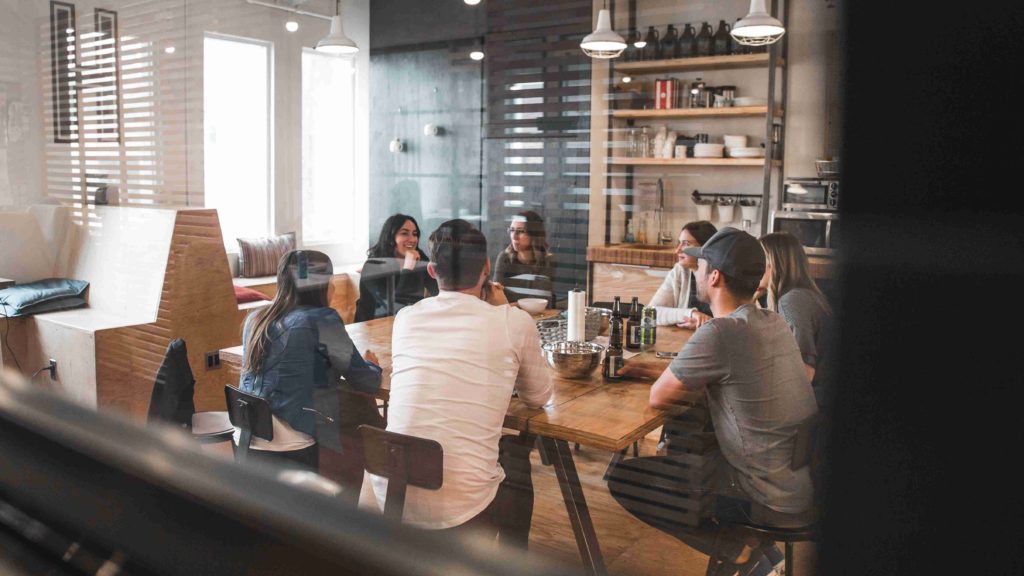
It may be that working life never returns to what it was before Covid – and that might be a good thing. The University of Southampton did a study on what learnings could be taken from homeworking throughout the pandemic with a view of incorporating hybrid and flexible working patterns into the “new normal.” The University offers 10 steps for succeeding in hybrid working, including the need to engage with staff preferences, and thinking about offering flexibility with working hours, not only location.
If you have any success stories or learnings from your experience of returning to the office, we would love to hear about them! Please get in touch with Sky Tunley-Stainton via sky@safeinourworld.com
Skills utilised:
Covid 19, News
Sightseeing in Spider-Man: how ditching web-slinging for walking photography saved my mental health during lockdown by Joe Donnelly
I crane my neck and stare in awe at the art deco skyscraper before me, 102 stories of limestone and granite towering over the busy New York City streets below. I’ve passed this building countless times before, granted, but from this angle – at ground-level, rubbing shoulders with thousands of pre-occupied pedestrians – there’s something so humbling about basking in its shadow.
Two streets over, I sense an armed robbery in progress but I ignore it. It’s my day off, I think to myself, before leaving this one to the boys and girls in blue. What I do instead is pull out my camera, take a snapshot and the read the following message as it flashes across my screen:
LANDMARK DISCOVERED 100 XP
Empire State Building
Midtown

For me, the in-game photography suite in Insomniac Games’ Spider-Man is second to none, making full use of its gorgeous scaled-down slant on the Big Apple. Since its PlayStation 4 release on September 18, 2018, and its Remastered iteration on PlayStation 5 in November last year, players have wowed with amateur galleries of Marvel’s favourite web-slinger perched upon the lightning rod of the Chrysler Building, dangling from the apex of the Washington Square Arch, and zipping around the sun-kissed Manhattan skyline, to name but a few of the game’s most commonly snapped photo-ops.
Throw the superhero caper’s comic book combat and high-altitude traversal into the mix and you have something special – to the point where there are few things more satisfying than capturing one of the eye watering beauty spots outlined above. Or a perfect slow motion roundhouse kick just as your foot connects with the jaw a faceless Kingpin goon. Or ticking off another of the game’s extensive list of ‘Landmark’ locations – a mix of real-world and fantastical sights, alike such as the Brooklyn Bridge, the Wakanda Embassy and the Avengers Tower – before slapping on a hashtag and sharing the scene on social media.
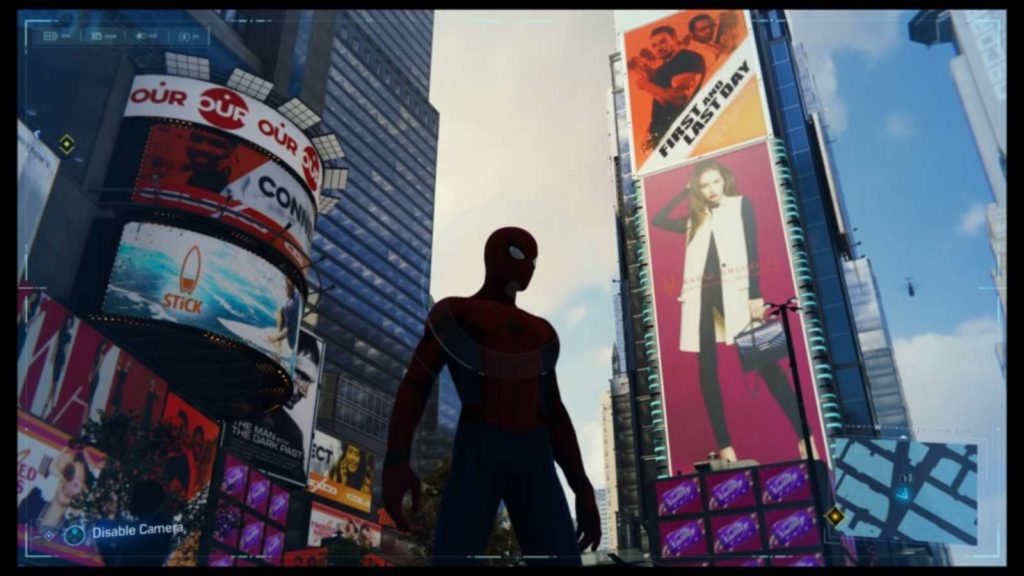
With so much to see and do the scope for replayability in Spider-Man is huge, which is why it quickly became one of my favourite go-to games during the last year and-a-half of quarantine amid the ongoing global pandemic. Like so many people during the longest stretches of lockdown, my mental health suffered. On my darkest days, while struggling with the isolation of the “new normal”, I became seriously excited at the mere thought of visiting this virtual version of Manhattan as a break from an increasingly uncertain reality.
And it was during these process that I fell in love with a whole new way of playing. Equipped with only a camera, I set about completing the game’s ‘Landmark’ challenges exclusively on foot, taking snaps of the city’s most popular sights while soaking in its atmosphere at ground level – something often missed while traversing above.

Before unlocking fast-travel, swinging from building to building is the fastest way to get around in Spider-Man’s urban sandbox, so much so that it’s easy to forget the sprawling world below. During lockdown, at a time when holidays and real world exploration became impossible overnight, I delighted in exploring Spider-Man’s game world at a thoughtful pace, in essence guiding Peter Parker through an unorthodox, non-combative walking simulator, paying no mind to thwarting Doc Octopus in Story Mode or the dynamic crime set-pieces unfolding all around in Free Roam.
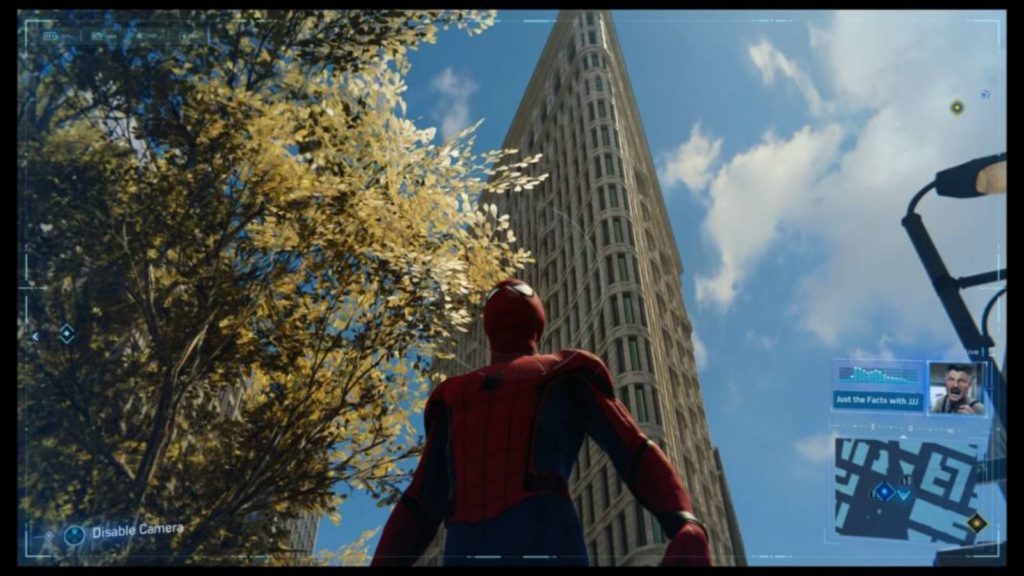
I’ve always loved the therapeutic elements of walking simulators – games such as Dear Esther, Everybody’s Gone to the Rapture and Firewatch – whose expertly-paced narratives promote mindfulness and calmness; and I’ve always enjoyed playing games in entirely different ways as primarily intended, such as the real-world-aping properties which underpin Grand Theft Auto 5’s role-play scene.
Playing Spider-Man as a walking photography simulator, then, is hardly how Insomniac intended its larger than life action adventure game to played, but I nevertheless found myself enjoying it most while wandering around the streets of a world so rich in atmosphere, character and life as I played tourist in a digital city that never sleeps.
On the evening of Sunday, March 22, 2020, the UK Prime Minister Boris Johnston addressed the nation on the telly and told us the country would enter lockdown the following day. If you were able to work from home, you were advised to do so. We were told to limit contact with others, to avoid cuddling and to wash our hands thoroughly while singing Happy Birthday. We were told to steer clear of public transport, and we were told to limit outside exercise to just one hour per day.

It was rubbish. But I had New York. I had Peter Parker, a camera, the Chrysler, the Flat Iron, Central Park and St Patrick’s Cathedral. I had the Empire State Building and the huge shadow it cast deep into the hustle and bustle of this make believe Fifth Avenue. I had a world whose rules remained the same when the real world around us was thrown into chaos.
If your mental health has suffered in the last 18 months, I hope that you’ve found the strength to talk to someone – a friend, a relative, a mental health professional or maybe even all three. If you’re not quite there yet, or maybe just want to lose yourself in a video game for a little while, I can’t recommend grabbing a camera, stepping out in your favourite Spidey suit and hitting the road on foot enough.

Joe Donnelly
Joe Donnelly is a Glaswegian writer, video games enthusiast and mental health advocate. He has written about both subjects for The Guardian, VICE, his narrative non-fiction book Checkpoint, and believes the interactive nature of games makes them uniquely placed to educate and inform.
Skills utilised:
Covid 19, Stories
Lockdown Connections: How Gaming Has Brought Us Together In The Year of Being Apart
How the Video Games Industry united through Lockdown
Nobody could have ever predicted how 2020 and 2021 would play out. A pandemic hit the world that would change the lives of everyone in many ways. Society felt like it would never be the same again.
It wasn’t all darkness, though. A light shone through as the video games industry took up arms and made it their mission to bring people together, providing new ways of social interaction for gamers and people who have never touched a game in their life. From giveaways and games for carers, to free memberships, events and much more.
Favourite characters such as Geralt from The Witcher series, developed by CD Projekt Red, spoke to The Gaming Bible and gave hope that things would get better:
“Stay on the path,” Geralt’s gravelly voice advises me over Zoom. “Things are going to get better. I know they’re bad now, but they can only get better. So stay on the path – and kill those monsters.”

Chris Baraniuk wrote an article for the BBC that showed games weren’t just a distraction, but how beneficial video games can be in people’s lives, especially during the pandemic:
“For many, games don’t just provide a way of connecting with quarantined friends, they are also alternate universes where the reality of pandemic can be momentarily forgotten.”
The article also talks about the hit title, Animal Crossing, that launched just as most of the world were heading into the first lockdown. It was a ray of sunshine for many, providing a place for players to meet, explore and hang out in their own wonderfully crafted island. The game delivered a much-needed escape in such challenging times.
Then the government realised the opportunity of reaching people through games. They started getting involved with video game companies to put safety messaging about COVID-19 into popular games, such as Sniper Elite, Dirt, Candy Crush and more. In doing so, the plan also showed one of the many ways gaming could be used for good, leading Culture Secretary, Oliver Dowden, to express his “delight” in seeing “ the UK’s brilliant video games industry stepping up to strongly reinforce this message to gamers across the UK.”

Gaming for Carers was an initiative that saw many AAA and Indie companies coming together to give free games to those who are working on the front line. It was a way to show a big thank you to NHS staff for going above and beyond, with companies such as Codemasters, Konami and Team17 contributing their games to the cause.
Another notable organisation helping people stay connected over the pandemic was CALM (Campaign Against Living Miserably). CALM teamed up with UKIE to offer advice on how to get connected and how gaming could help through the tough times ahead, whether gaming with friends, offline, or watching gaming content via Twitch, YouTube and more.
England Cricketers used online gaming to pass the time on tour, support mental wellbeing and keep up team rapport. Cricketer Stuart Broad found it particularly transformative, saying: “Gaming, for me mentally, has been vital.” Talking about the gaming sessions the team have streamed online, his experience was very positive: “There’s no abuse. There’s no agenda [...] It’s all just really positive chat about gaming and good fun, which I’ve really enjoyed. It’s quite rare for social media, to be honest.”
Some gamers had described Square Enix’s Final Fantasy XIV as a massive help throughout the pandemic. NME’s Alan Wen wrote an article highlighting how the game has been a lifeline for many through these uncertain times: “FFXIV has made me feel like I can be with people even when I’m in quarantine. The way the game’s social aspects encourage teaming up with strangers to turn them into friends, the role–playing scene, and all the amazing people has been incredibly positive.”

We also asked some of our SIOW representatives how video games have helped them during the pandemic.
Antonela Pounder, Director of Global Community @ 505 Games, Safe In Our World Ambassador:
“Our ability to go wherever whenever has been taken away from all of us, which I’ve found brings about a feeling of loneliness, even if you don’t live alone. Forming new friendships with others through current friendships has been incredible. We basically now have our own online support bubble where we talk about anything and everything (but try to avoid COVID chat!). Calls almost every evening has helped hugely, whether this be on Discord or using PlayStation parties, as well as engaging in online multiplayer gaming sessions together. Regular communication has been key, whether it be with friends, family and/or colleagues.”
The Demented Raven, Streamer, Safe In Our World Ambassador:
“Whenever some of my friends have had a rough day or feel alone, we decide to play video games to brighten up our day. One of these games is Overwatch and it always ends up with wholesome laughs, silliness, banter and pure joys of friendship. Video games have the power to really help people reach out and are a reminder that you’re never alone.”
Matt Murphy, Genba Digital CEO, Safe In Our World Trustee:
“I was a child of the ZX Spectrum era, and so Way of the Exploding Fist and Saboteur were my Persona 5 Strikers and Dying Light 2, as I saved my pocket money to buy the latest cassette games. But my love for games never waned over the years even if my access did, as work and now kids became my primary focus. I have a son who is 5 and a daughter aged 3, and so they aren’t quite ready to outwit mummy and daddy at Among Us just yet. But I’ve started to use video games as another way to have fun with my children during lockdown at the weekend when we have a spare hour – especially given the creative challenges facing the social secretary for two small children on a Saturday! Yeah,it’s not the latest AAA, but my son loves it when we both play the Lego Movie game together. It focuses him on teamwork, fine motor skills, problem solving and the fact that you can’t always win – a pretty cool life lesson if you ask me. It’s great for our souls in these stressful times and as long as he can be Emmet then everything is awesome.”
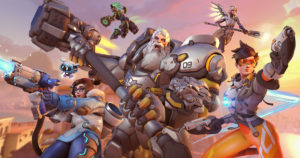
What is clear now is that more and more people in the World are recognising that gaming isn’t just for kids, a waste of time or a bad influence. Through 2020, people realised that gaming was able to help us with our social needs, provide a much-needed distraction, and support mental wellbeing. The video game industry saw huge growth during these times, with more households buying consoles to play their new favourite games to escape in, whether gaming on their own or with others online.
Will gaming be recognised in history for providing such an escape in the pandemic? We hope so. And we’ll continue to shine a light on the wonderful stories that show video games can be a crutch to many in dark times.
Skills utilised:
Covid 19, News
Game Changer: How embracing the new in videogames can help us adapt to real-world changes by Ian Collen
We’re often told that change is a good thing, whether that’s in videogames or in real life.
New is fresh and exciting, and any kind of break from the same-old should be embraced with enthusiasm. However, change can also be intimidating and stressful, with many of us finding comfort or a sense of control in sticking to those old routines; happier with repetition and familiarity rather than having to adapt to something new and often beyond our control.
In gaming it’s why people will demand new and improved features for a sequel, but then complain when the new game isn’t quite the same as the original. Admittedly, shooting zombies or aliens or whatever your videogame of choice might be doesn’t necessarily compare directly with those issues happening in your everyday life, but there are many similarities that can echo the fact that while change can be difficult, a little patience and perseverance can go a long way.
In some ways, even booting up a new game for the first time is a rather daunting change. Having spent days, weeks or even months learning every last subtle nuance of one title, you’ll now find yourself sitting in a tutorial for a whole new experience. That reassurance of knowing all the right moves, all the tricks, having the best equipment and never really having to worry about doing the wrong thing through anything other than an honest mistake is gone – and in just about any walk of life, that can be a cause for some trepidation or anxiety.
Sure, many of the parameters might be familiar and you hardly need a reminder of where the jump or crouch buttons might be, but there’s still a wealth of information to figure out, such as how your special abilities work, how to combine those magic potions or one of a hundred other little things. Of course, you would have been in a similar position when you started that last game, and that turned out pretty well – so you can at least take comfort in the process and appreciate that the new will soon become the norm.
Of course, life doesn’t always give you a great deal of choice in the matter (or a handy tutorial for that matter) and enforcing change is also a trick videogame developers can employ to keep you on your toes. Many RPGs or action titles will use it early on, letting you start the game fully maxed out with a raft of awesome abilities, only to then strip them away completely and leave you faced with levelling up from scratch – but having caught a glimpse into what you’ll ultimately become over the next 10-20 hours. Conversely this can also happen mid-game, with the likes of The Last of Us delivering an unforgettable (and un-put-downable) twist by suddenly shifting gameplay from the tough gun-toting hero to the preyed upon girl he was protecting.

This could also apply to origins stories, such as the Tomb Raider reboot, where you know the super-heroine she’ll become, and so getting to oversee that transition from powerless to powerful can be rewarding because you have that awareness and anticipation of how things will end up. It’s not always that clear-cut in real life, of course, but focusing on the end game and accepting that there is a certain amount of ‘levelling up’ to be done to get there, one small upgrade at a time, can help.

Videogames also use change as an optional accessory to further broaden their appeal or, more often, their lifespan. Titles such as Borderlands and Destiny will offer multiple characters, each with different abilities and skill trees to explore that effectively require rebuilding from scratch – albeit in a very familiar environment from your previous playthroughs. Again, these changes come with a sense of anticipation because you’ve done it already with a previous character, even if there’s no way of knowing if this new character is going to better or worse than before. However, there is some comfort to be found in the repeatable format – and ideally plenty of fun to be had in seeing how the new hero or heroine compares. And if it doesn’t work out, you can always go back to your original character and appreciate their super-bad-ass prowess even more.

There are some games that could be seen as more direct ways of embracing and appreciating change. The excellent original season of Life is Strange not only deals with a young girl coming to terms with things that have changed in her home town as she returns after several years away, but the core gameplay mechanic also gives you the power to rewind time and make definitive decisions based on how you see events play out in differing ways. Gone Home is another great example that offers more of a ‘hands-off’ storyline as you simply explore your childhood home and piece together various events that have affected the lives of your parents and younger sister since you moved out.
It’s not necessarily that there are vital life lessons on display that we can all learn from, more of an appreciation that change can affect people in many different ways – and there’s not always a right or a wrong way to deal with it. It’s also worth bearing in mind how some of these situations can seem incredibly burdensome at the time but yet eventually become just another acceptable piece of the bigger picture. Some of those decisions in Life is Strange, for example, can be incredibly difficult to make, but ultimately their impact on the final narrative can be far more arbitrary than many of us had twisted ourselves into knots over.
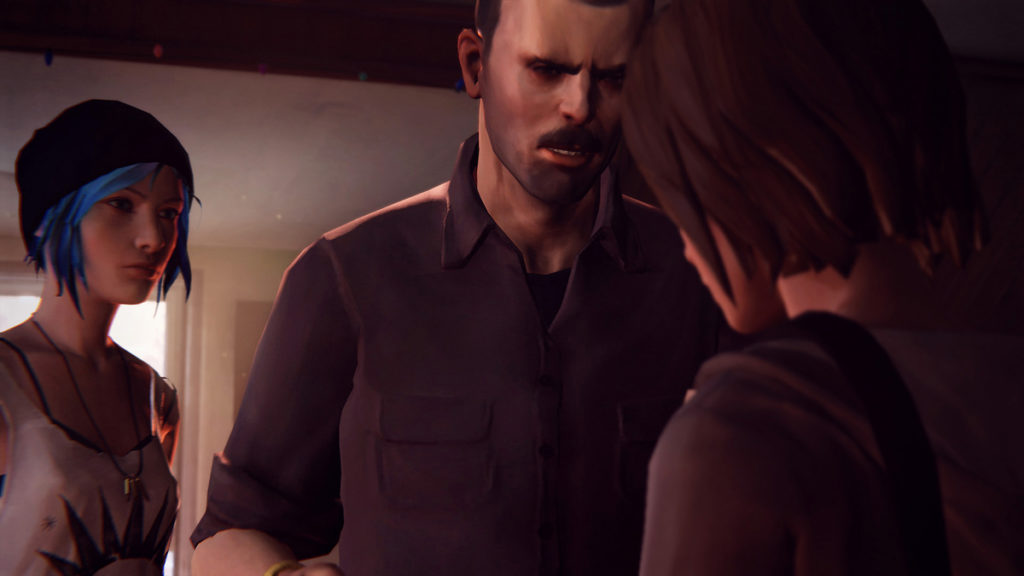
In some ways it could be compared to moving house – one of life’s most demanding changes. Much like getting used to a certain character or style in a videogame, you get comfortable and feel confident in your old home because you know where everything is and how it works; where the fuse box is, how to fix the leaky sink, the best local takeaway and so on. Having to find a new home and learn all-new answers to those same questions can seem like a lot to take in, but eventually you will get there; you’ll track down the fuse box, acquaint yourself with the pipes under the sink and find a new and maybe even better local takeaway!
Change isn’t always a good thing in the same way that sequels aren’t always better than the original, but there will always be a demand for something ‘new and improved’ and sometimes we have to break out of our comfort zones to find out if that plan succeeds. Embracing change isn’t always easy, but being able to move forwards while accepting that there may be a few nervy steps as new skills are learned and old habits brushed aside, can go a long way. After all, every game you’ve ever played was new once, and we don’t doubt that you’ve gotten pretty good at more than a few over the years…

Ian Collen is a writer and editor with more than 20 years experience – with well over half of that spent working in videogames. He’s worked on the likes of XBM, 360 Gamer (later known as One Gamer), and the innovative digital publication, Gamer Interactive. He also learned more about drones than he thought possible as editor of the self-explanatory Drone Magazine and is currently working as a freelancer.
Skills utilised:
Covid 19, News
How to Combat Loneliness in a Sea of Solitude by Georgie Peru
Loneliness is a personal feeling, so everyone’s experience of loneliness will differ. Being alone doesn’t by proxy make you lonely; loneliness breeds from an emotional state of loss, whether that be loss of social contact, loss of a person, or feeling lost within yourself.
Ironically, knowing that others in the big wide world that surrounds us are too feeling lonely, brings a sense of connection and togetherness. Exploring themes relating to loneliness and indulging in such scenarios in the form of video games can bring an overwhelming sense of relief. Relief that all of our journeys somehow coincide and offer hope, through understanding mental health in a relatable way and finding the light, even in the darkest of moments.
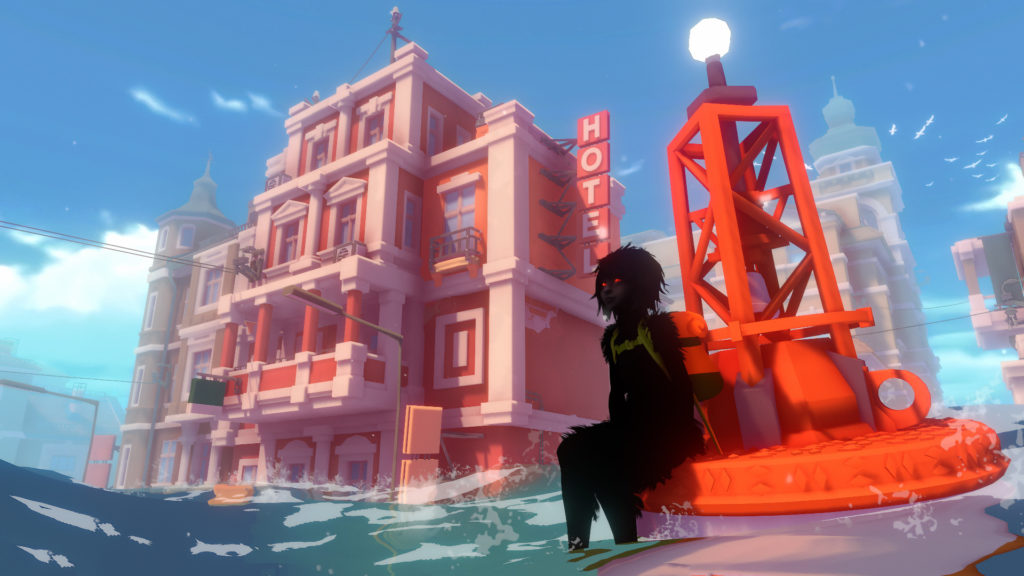
Sea of Solitude is a very personal game, developed by Jo-Mei Games, which takes you on a journey of loneliness. You play as a young woman called Kay; covered in black tendrils with eyes burning red like the sun, you have a deep feeling of loss, and that’s the thing, you are lost. Kay hits the nail on the head early on by saying “I’m still trying to piece it together. What is wrong with me? Where am I?”.
It’s a very poignant position to be in; controlling a character whose deep-set loneliness has affected her physical appearance. Unraveling the narrative, you and Kay learn how the gnarly monsters in Sea of Solitude connect to people in her life or as manifestations of her internal battle of emotions that can be interpreted by the player.

As Kay, herself, is a monster, she is in a unique position where she can talk to other monsters. It’s soon revealed that the monsters in Sea of Solitude are experiencing their own issues. Being able to relate to someone (or something) else who is also going through the same struggles presents a sense of understanding, sharing pain to bridge a connection.
Just like in “real-life”, the monsters in the game start to regain parts of their humanity by opening up and talking about their pain. This kind of narrative displays the daily struggles of mental health and the realisation of catharsis when a person is able to open up about their pain of loneliness by talking to others and understanding that other people are going through a similar experience.

Cornelia Geppert, Creative Director and Writer of Sea of Solitude sends a message that shared pain can reduce loneliness. Geppert herself was experiencing one of the “loneliest points” of her life when she had the idea of the game. Sea of Solitude constantly reminds us that sharing our internal struggles and pain with others, or finding something we can relate to, can bring a sense of peace and serenity – where it be loneliness, depression, anxiety, or something else.
Loneliness can make you feel like you’re drowning, especially when you’re hit with obstacle after obstacle, and this is something else Sea of Solitude touches upon. Playing as Kay, it’s very much drummed into the character and the player that “if you don’t succeed, try, try again”. If you’re unable to overcome an obstacle, Kay stands back up a few seconds before the point she failed, allowing you to easily try again without going through more pain and suffering.

There will always be bumps in the road, but the beauty of what Sea of Solitude teaches us is that everything can be overcome, as long as you keep trying at your own pace. All you can do is try, and eventually, you will succeed. Whilst Sea of Solitude is a game about loneliness, it shows us that loneliness and other mental health issues can be combatted by facing them head-on; by relating to other people, or scenarios that allow us to share a mutual pain. It shows us that we are even more connected than we ever thought we were.
Yes, there will be times where we feel like we’re drowning, and just as we start to paddle and keep our heads above water, our boat capsizes again and again. But above all, the darkness that loneliness brings will always shed light – there is always hope that we can uncover in metaphors, in games, and in life.

Georgie is a bright, friendly and outgoing person. She is a highly analytical and technical individual who has a passion and the right mind-set for thought-provoking work, particularly focusing on content writing and web writing.
Skills utilised:
Covid 19, News
Hub World – Loneliness
Hub World – Loneliness (January)
Welcome to Hub World! Each month I will be discussing a topic we have been reflecting on throughout the month and how we, as a community, tackle it in our daily lives.
Loneliness and isolation is a complex feeling that comes in many forms, rather than it’s strongest association of being physically alone. You can feel lonely surrounded by hundreds of people, or even within a group of close friends and loved ones. This might be because you feel like you are unable to connect with those around you on an emotional level, which in turn leads to putting on a social mask in order to interact with others in the day to day – so as not to feel like a burden to those around you.
Last month at Safe In Our World, we thought about loneliness, the impact it has had on us and those around us and how we have tackled this feeling – particularly during the pandemic.
During this time, one of the most important things for me was to find a way to reconnect with my mum, who lives alone and has had a tough few months. When I was young, we used to play video games together – or she would watch and experience a game’s narrative with me. That’s something that we have been missing since we began living apart, so I hatched a plan to bring her back into that world via the Nintendo Switch and online play in Animal Crossing.
I'm bringing my mum into Animal Crossing this Christmas. She hasn't had much of a break recently, so I've spent all of today harvesting balloons and prepping my island for the big surprise. I've still got a way to go, but it's getting there! ❄️🎄❄️ pic.twitter.com/eah75S44sn
— Emma Withington (@EWithingtons) December 25, 2020
I spent several hours over Christmas setting up an ‘event space’ on my Animal Crossing Island, filled with presents and decorations. Once my mum had received the Switch, we spent time talking over the phone as she learned the basics of the game and after a couple of days I brought her to my island, where she was surprised with a variety of goodies! It’s one of the best decisions I have made during lockdown and it has been a joy to see her re-engage with games again and for us to be able to play together like we used to.
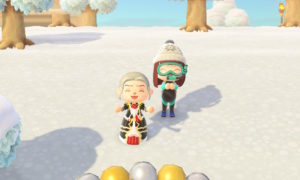

Antonela Pounder
Our ability to go wherever whenever has been taken away from all of us, which I’ve found brings about a feeling of loneliness, even if you don’t live alone. Forming new friendships with others through current friendships has been incredible. We basically now have our own online support bubble where we talk about anything and everything (but try to avoid COVID chat!) Calls almost every evening has helped hugely, whether this be on Discord or using PlayStation parties, as well as engaging in online multiplayer gaming sessions together. Regular communication has been key, whether it be with friends, family and/or colleagues.

Marie Shanley
As the world deals with loneliness caused by the isolation of the pandemic, the advice that I have given out over and over on the channel is to check out streaming platforms and try to connect with others who share your interests: whether that’s gaming, knitting, painting miniatures, or anything else really.
The best thing is seeing people find lasting friendships, as they are connecting with others through various platforms. My stream is centred around mental health discussions, so friendships are forged through helping to support others with similar mental health concerns.

Richard Lee Breslin
It doesn’t matter who you are, what you do and how many people you have around you. We can (and have) all experience loneliness in our lives.
Despite being a happily married man with a wonderful son, I can still feel lonely. I have a tendency to lock my troubles away in the back of my mind and my reluctance to talk can isolate me despite being surrounded by loving people. During times of the global pandemic we can be cut-off from seeing loved ones and friends. Thankfully we have modern day technology and social media at our call.
Social media has played a huge role in our lives pre-pandemic but now it’s more important than ever. If there are some positives taken from this pandemic, it’s made me cherish those smaller moments and I’ve even gained some great friends.
I know it may feel difficult at times not being with friends and loved ones, but if you can, don’t cut yourself off from your world. Let your loved ones and friends know that you’re thinking of them, because they’ll be feeling the same about you too.

Harry Burton
Loneliness can easily creep up on you, I have personally found that it can be the first step leading to a downward spiral – usually leading to less focus on caring for your own mental health and wellbeing needs.
Something which has helped me considerably is Digital Fitness through social media and applications such as Peloton and Nike. No matter your equipment or goals there are communities to help you stay focused, spread positivity and offer advice. Particularly on Facebook and Strava I have connected with new people through the shared vision of reaching our goals.
You’ll find people are eager to listen and support you through the pursuit of staying active!

The Demented Raven
Whenever some of my friends have had a rough day or feel alone, we decide to play video games to brighten up our day. One of these games is Overwatch and it always ends up with wholesome laughs, silliness, banter and pure joys of friendship. Video games have the power to really help people reach out and are a reminder that you’re never alone.

Featured Recommendations:

Emma Withington is a freelance writer and PR account executive at Bastion who has worked on campaigns for a variety of titles, including Control and Final Fantasy XIV: Online.
She is currently spending time focusing on the wider community and how she can help others through her personal journey with mental health.
Skills utilised:
Covid 19, News
Finding Your Own (Virtual) Happy Place by Ian Collen
It’s no big secret that video games can be great for offering a virtual retreat within which to interact and connect with others, and you’ll often find some familiar titles listed. However, there are also plenty of hugely rewarding experiences to be found outside the mainstream.
When it comes to those more popular examples, Animal Crossing: New Horizons may be 2020’s prime candidate, combining online friendship and cooperation in both single- and multiplayer modes. We could also point to the ever-popular open world creativity in Minecraft, setting up online fireteams in Call of Duty or to tackle Destiny 2’s latest raid, finding a like-minded community in the likes of FIFA or just having fun in cult hits such as Fall Guys or Among Us (and their respective Twitch feeds!).
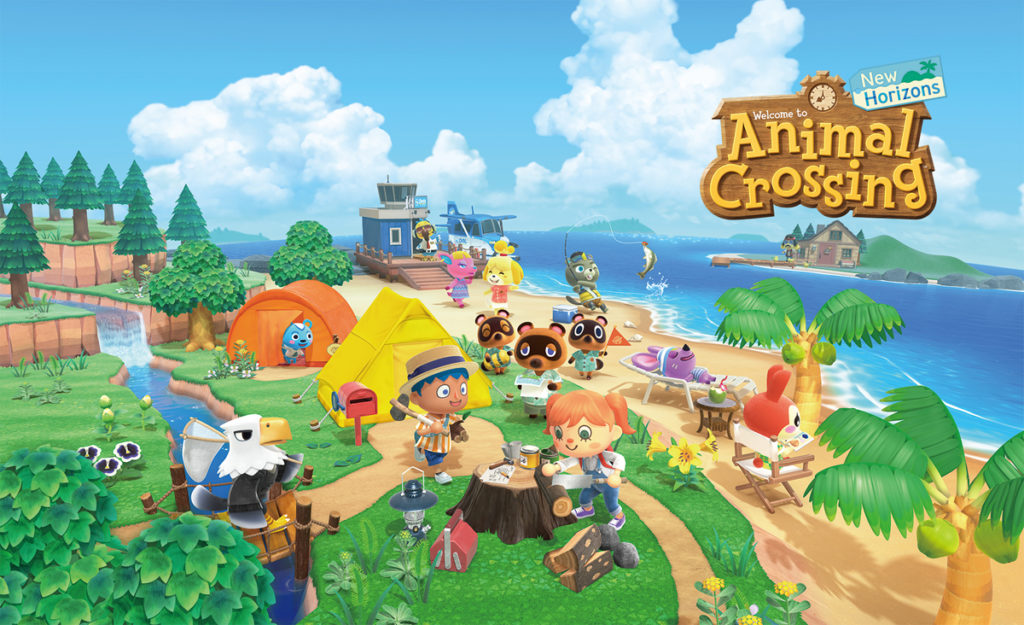
However, in a year that has seen a lot more people finding themselves socially distanced from the outside world, many have sought solace with a few rather more unusual pet gaming projects – not only for simple entertainment or to answer that ‘what do I do now?’ question that often rears its head when you’re on your own and with lots of spare time, but also for an almost motivational sense of structure and purpose; albeit a largely flexible and personal one.
For example, while there are plenty of iOS and Android titles for your phone and tablet of choice there’s a lot to be said for those in the mould of The Simpsons: Tapped Out or SimCity BuildIt – games that involve setting objectives into motion that can take hours to complete, with other variants including the likes Township and Last Shelter: Survival. Once you’ve cleared the basics in these games you can find a nice routine in dipping in first thing in the morning and then later in the evening to gather up the rewards and set the next sequence of missions into motion – where both personal and community-driven goals help to combine for a series of ongoing small successes from one day to the next.

When it comes to finding a happy place for slightly longer experiences, that obviously falls down to personal preference and how much time you have on your hands. For example, sports fans could look to the likes of F1 2020, which can not only fill the hours if you commit to a full racing weekend set-up or shaving tenths off your lap times, but can also provide a great multiplayer community if you find a lobby of fierce-but-fair rivals to test yourself against.
Following the references to SimCity and finding comfort in those small victories from self-governed gaming, another such title that springs to mind is Cities Skylines. For those unfamiliar with the game, it’s a city-building title in a similar vein to SimCity and its ilk, which may be a few years old now but can still be an absorbing way to while away more an afternoon or ten.
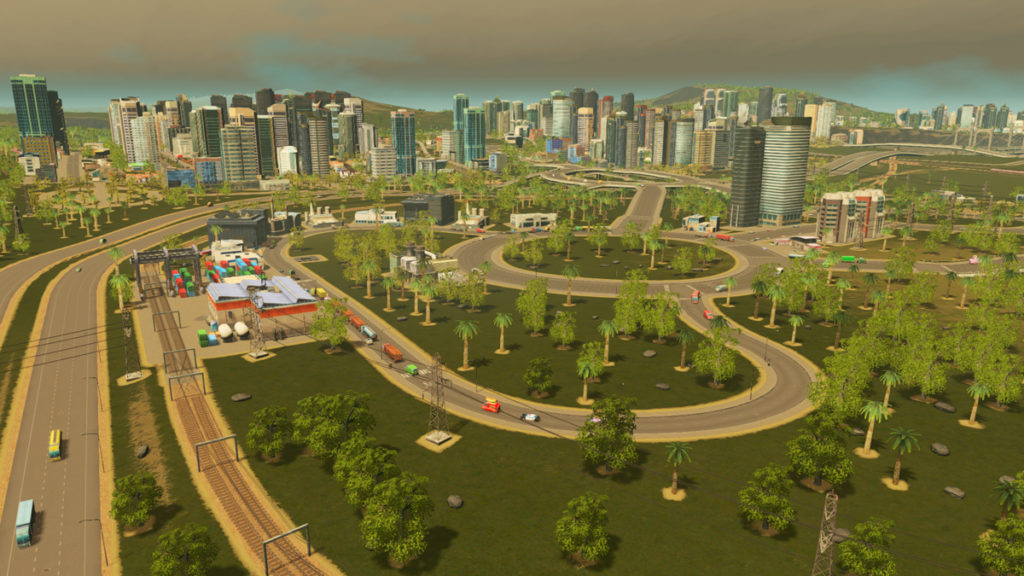
Perhaps the main difference is that once you’ve got to grips with the basics (not putting water pumps downstream from sewage works etc) it essentially boils down to a traffic management game as you try to find the most efficient way to combine your residential, industrial and commercial demands. It’s not too complicated once you’ve clocked the fundamentals, nor is it overly punishing if you make any mistakes (there are few pitfalls that can’t be fixed!), and so you’re mostly free to play around with building some fun and potentially creative cityscape solutions.
It is a single-player game but, as is so often the case, the internet can be an invaluable community-driven resource to find working answers to your ongoing problems (be warned: you might find yourself watching way too many YouTube videos on road interchanges!) – but finding your own solutions, sometimes more through luck than judgement, can be a hugely rewarding way to keep your mind active and your brain in gear.
It might be a hard sell to an unknowing audience, but there’s a heart-warming joy to be found in hooking up both a passenger train and cargo transport network through a series of raised roundabouts that somehow flow seamlessly around the city (your own ‘Isolation Station’ as Bob Mortimer’s Train Guy might call it). Or maybe you just throw down a crazy one-way street that runs over two bridges and underneath a highway as a last-gasp ‘why not?’ solution to a gridlock that’s stagnating your city’s development – and it changes everything. Who knew traffic management could feel so good?!!

In the absence of a more conventional sense of structure or routine which may otherwise come from a direct connection to the outside world, finding one or two games that scratch your own individual itches in these difficult times can add a small sense of purpose or control over your day-to-day life – even if trying to justify to someone else that you’ve had a busy and productive day might be a stretch! Regardless, simply finding that happy gaming place and letting it play out on your own terms can be as satisfying as it can be rewarding for your self-esteem.
Who knows? Maybe each morning you’ll crack your head off the pillow to dig out your phone and harvest a few crops, kill some zombies and then set a few things in motion to catch-up on later in the day (adding a few ‘to do’ items to your diary based on when their respective timers end). And then the answer to that ‘what do I do now?’ question could well be: ‘oh yeah, I was going to build a bridge across to that island, which I can then turn it into a tourist resort and hook up a passenger station to the train line like this and then run a connecting road to the distant highway like that…’.
Of course, the seemingly mundane world of traffic management in Cities Skylines isn’t going to float everyone’s boat. Perhaps you’re more of a survival fan looking to face off against dinosaurs in Ark: Survival Evolved, or happier simply playing Scrabble with a few strangers on your laptop, or maybe shooting them in Fortnite… The point is that there’s a place in the gaming world for everyone to find a second home (and a third, fourth…) to escape into and unwind in on their own terms.
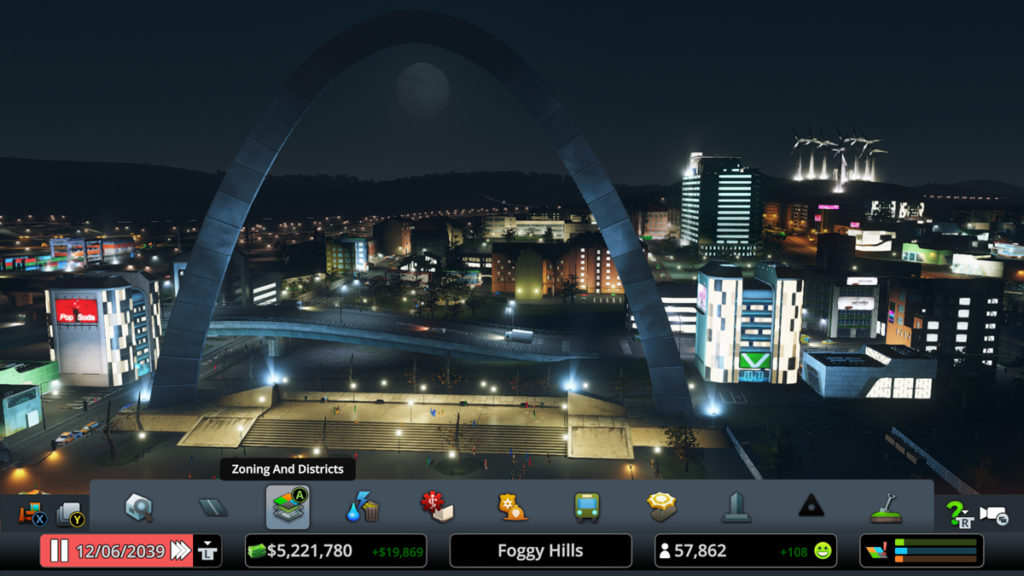
It needn’t be in the same ‘cool’ or popular titles that you’ll see splashed all over your social media feed (Cyberpunk 2077 anyone?), or even in a dedicated online or multiplayer game that provides an obvious connection to others. Sometimes it can be found in a very personal and often unique world, but one that can be grown and expressed through shared ideas and experiences – and one you’ll be rewarded by with every small victory that you’ll encounter along the way.

Ian Collen is a writer and editor with more than 20 years experience – with well over half of that spent working in videogames. He’s worked on the likes of XBM, 360 Gamer (later known as One Gamer), and the innovative digital publication, Gamer Interactive. He also learned more about drones than he thought possible as editor of the self-explanatory Drone Magazine and is currently working as a freelancer.
Skills utilised:
Covid 19, News
5 Games to Cheer You Up by Richard Breslin
It doesn’t matter what’s going on in the world, sometimes a dose of happiness can be hard to come by, especially for those that suffer with depression.
However, as I discovered as a child and right on through to present day as a married man with a son, videogames play just as an important role in improving my mental health, possibly even more so as I’ve gotten older. There are so many games that I love, whether it be an epic adventure, a superhero saving the day, a game of football or something creative, they all play a role in my happiness.
So with that said, as challenging as it has been to narrow down just five games, I’ve compiled a short list that I believe do a great job in cheering me up by putting a smile on my face, and I hope that they can do the same for you too.
Two Point Hospital
PC, PlayStation 4, Xbox One and Nintendo Switch
A spiritual successor to the beloved Theme Hospital, Two Point Hospital carries the torch into the modern day with giving you the responsibility of running your very own successful hospital. However, this is no mere hospital, as its filled with unpredictable chaos and bags of humour. You’ll be tasked with insuring that patients leave satisfied (preferably alive), making sure that staff are not skiving from their duties, oh and you’ll have to make sure that you don’t turn Two Point Hospital into a financial ruin and to show appreciation for your efforts, you’ll might even be rewarded with end-of-year awards at a prestigious ceremony. On the surface, Two Point Hospital may be judged as a business simulator and in some part that is true, but it’s also one of the most entertaining, funny and immersive games that I’ve played in recent times.
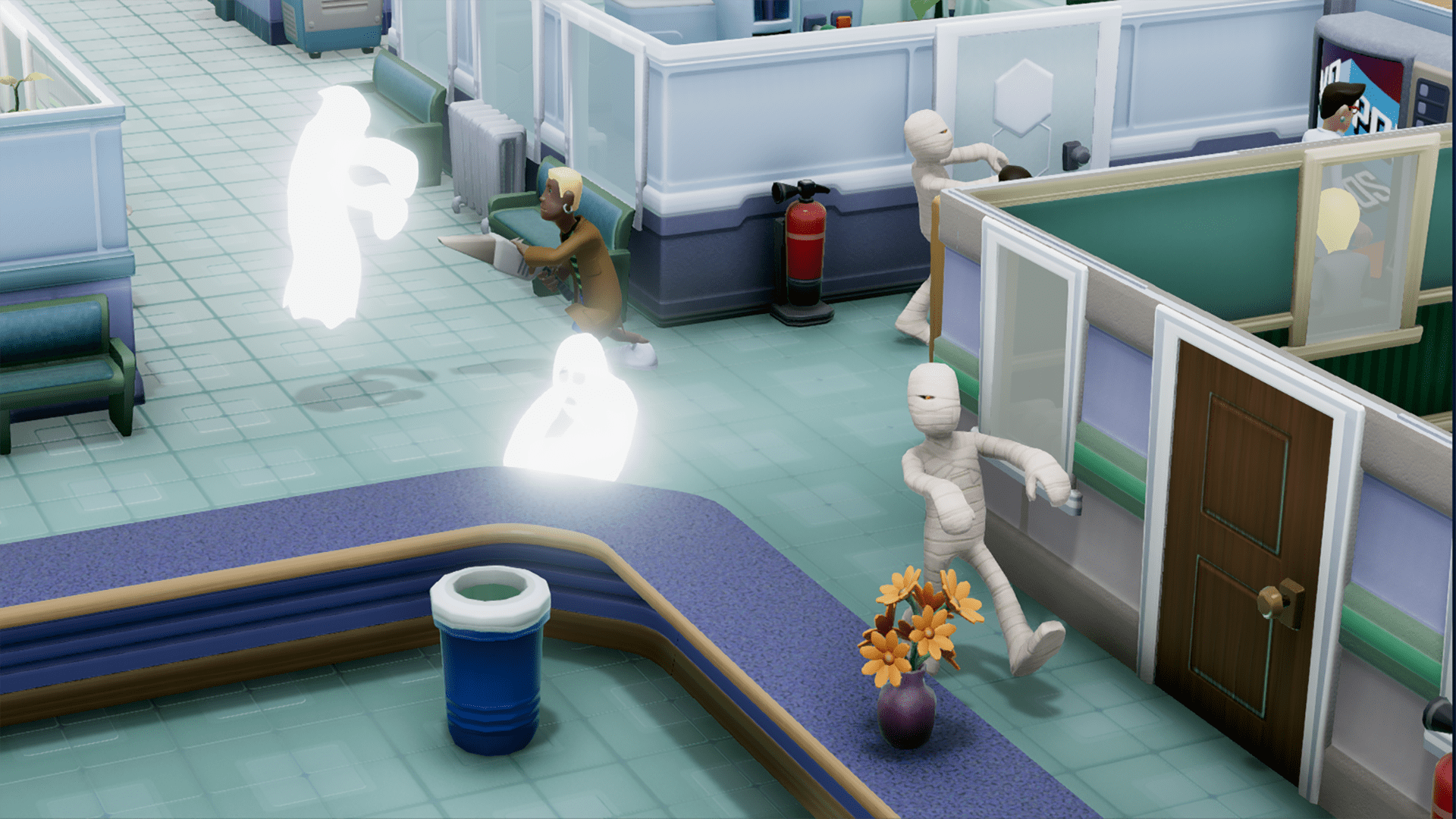
Concrete Genie
PlayStation 4/PSVR
Concrete Genie is a heart-warming story of a boy named Ash that lives in the small town of Denska. A once thriving fishing community brimming with life, much of this town is now polluted, abandoned and decayed. Ash is a lonely child that takes comfort in doodling creative art work in his notebook. But when a group of bullies target Ash, they steal his note book, tear it to pieces which leaves the pages scattered throughout the derelict town. So Ash embarks on a quest to recover his lost pages, but he soon discovers unexpected companions after finding a magical paint brush that brings his art work to life and brims the town with colour. Concrete Genie has a unique gameplay feature that utilises the motion controls of the DualShock 4 that has you doodling your unique creations in-game before they spring to life with character, personality and vibrant colour. Concrete Genie may have a campaign, but it’s a heart-warming story of a boy struggles, and an experience that will live with you for years to come.
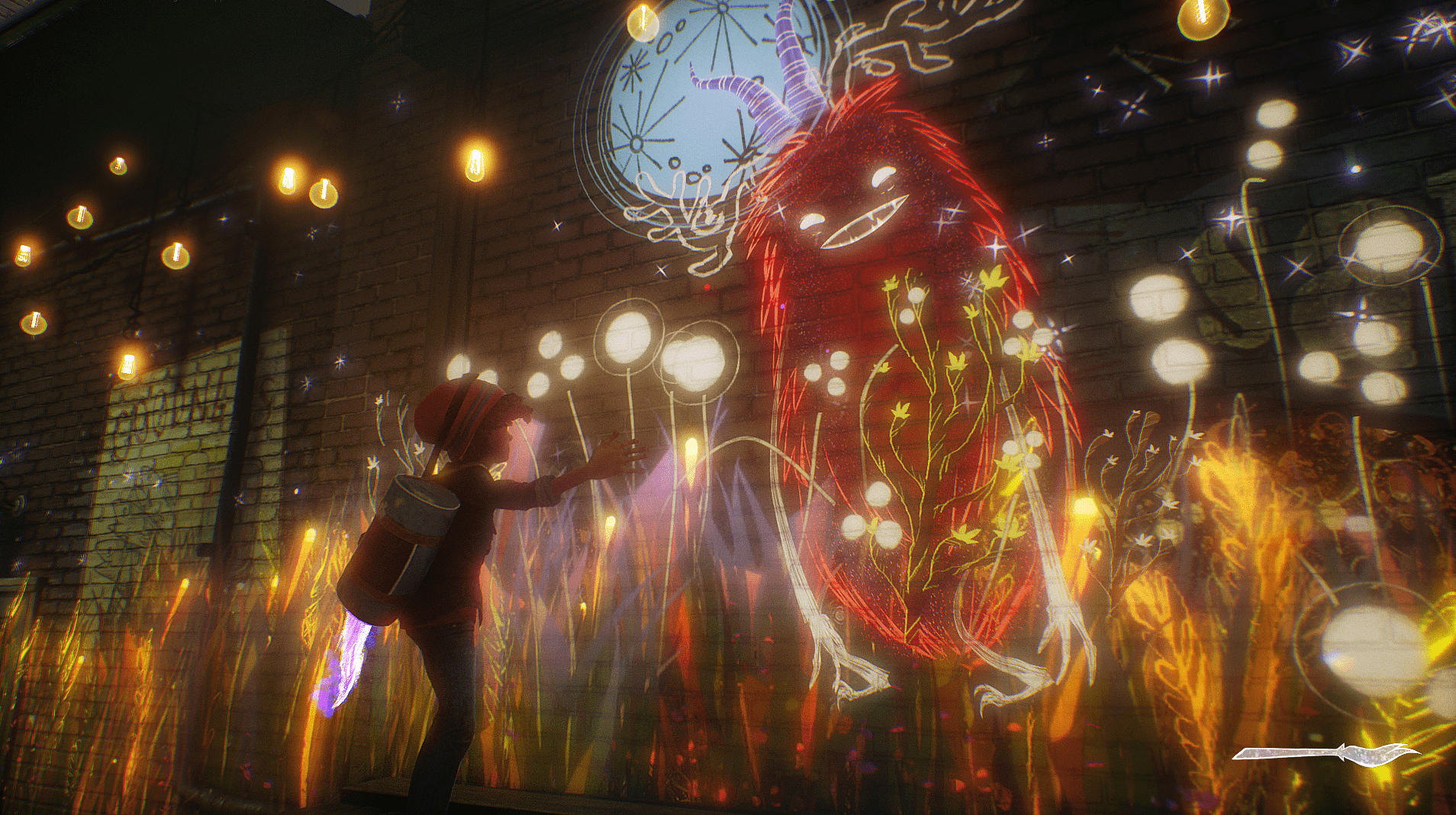
Dreams
PlayStation 4
In Dreams from LittleBigPlanet developer Media Molecule, your “dreams” can quite literally come true. The LittleBigPlanet series has always been about user created content with some impressive levels have been created by the community over the years since the first game released in 2008 for the PS3. However, Dreams can take your creativity to the next level, whether it’s your own unique games, perhaps you wanted to finish a cancelled game or something based up your favourite movie? You can even create something for visual purposes, for example, have you seen that life-like Full English breakfast? The thought of it alone makes my mouth water! But even if you don’t feel like creating, there are 1000’s of uploaded user created content which grows by the day, which you can check out for yourself. Dreams also offers a perfect taste for anyone thinking of getting into videogame development. Whether you want to be inspired or be the one inspiring, Dreams can give you a feeling of accomplishment and achievement like not many other games can.

Untitled Goose Game
PC, PlayStation 4, Xbox One and Nintendo Switch
Untitled Goose Game is one of the most ridiculous games that I’ve ever played and it just so happens to be one of the funniest too. The premise is simple, you are a Goose in a village, you’re placed in an area and you must complete as many of the in-mission objectives as you can. However, while you go about your duties as a Goose, it is also your duty to torment the villagers and cause as much chaos in the process as you can! Pinch picnic supplies, set off sprinklers, steal a garden rake, trap people in a phone booth, torment locals in the pub or just creep up to your unsuspecting victim to make them jump in fright with a loud HONK! Yet beneath all of this chaos, is a surprising depth of puzzle solving that will have you scratching your head. You may not initially think it, but Untitled Goose Game is like something that you’ve never played before and I can’t recommend it enough.
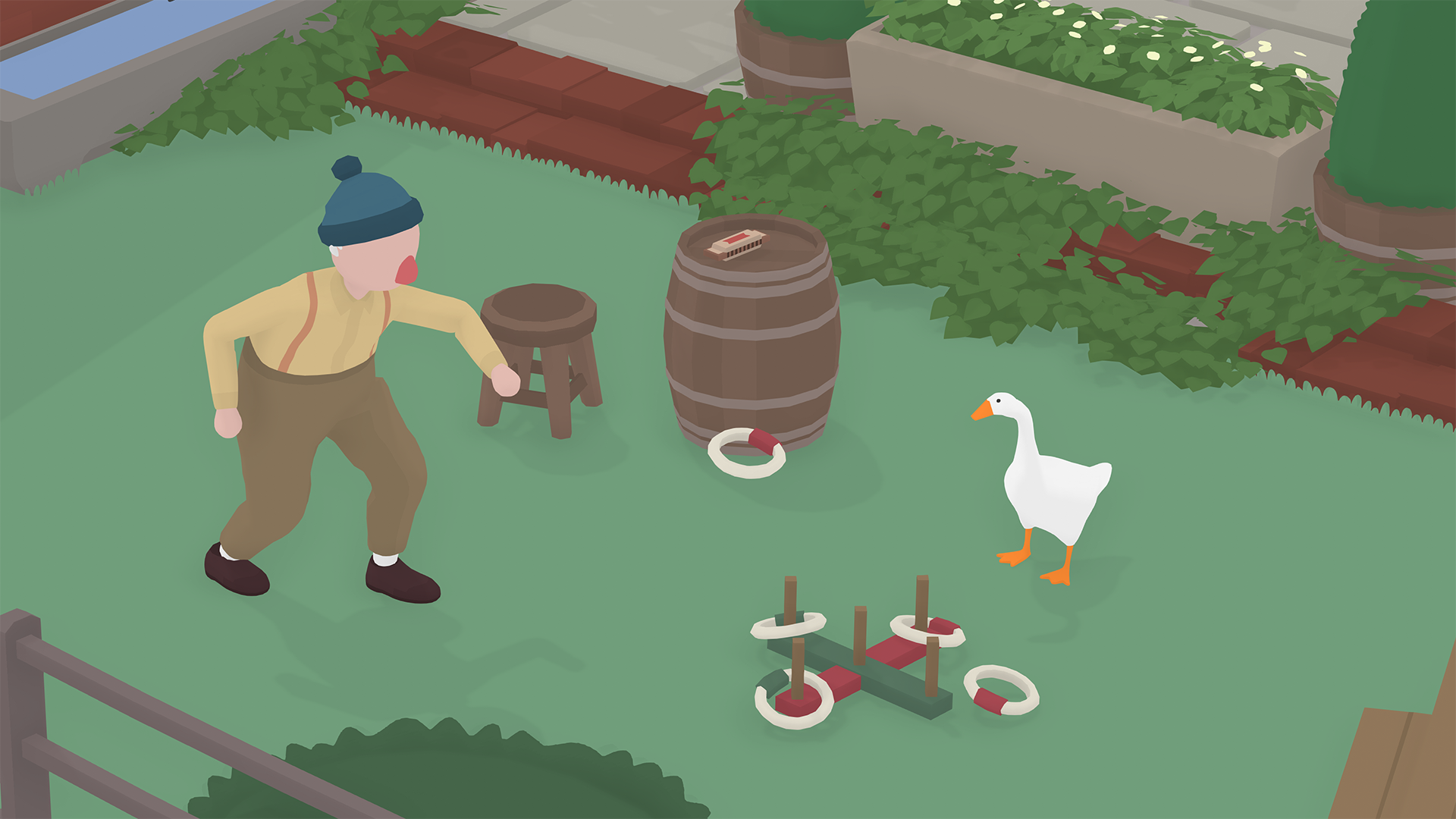
DOOM Eternal
PC, PlayStation 4, Xbox One, Nintendo Switch and Google Stadia
Now this is of course a mature game, and its 18-rated for a reason, so please only play this game if you meet the age requirements. Throughout the years, the premise of DOOM has always been a simple one, The Slayer aka Doom Guy visits Mars where all hell has been unleashed and it’s his job to eliminate the demons to save the day. DOOM (2016) was a fantastic reboot for the series, with gorgeous (and gruesome) visuals, fast & frantic gameplay and an adrenaline pumping soundtrack. The latest release DOOM Eternal brings all the elements that made the 2016 release so great, and then expands upon its success to make it one of the best sequels in recent times. For me, one of the factors that makes DOOM Eternal so great, is that the high-octane gameplay can actually work as a great stress release with its surprising therapeutic nature. DOOM Eternal is one of the best games of this generation and ultimately, one of the most satisfying. Now if you excuse me, I have some demons to slay!
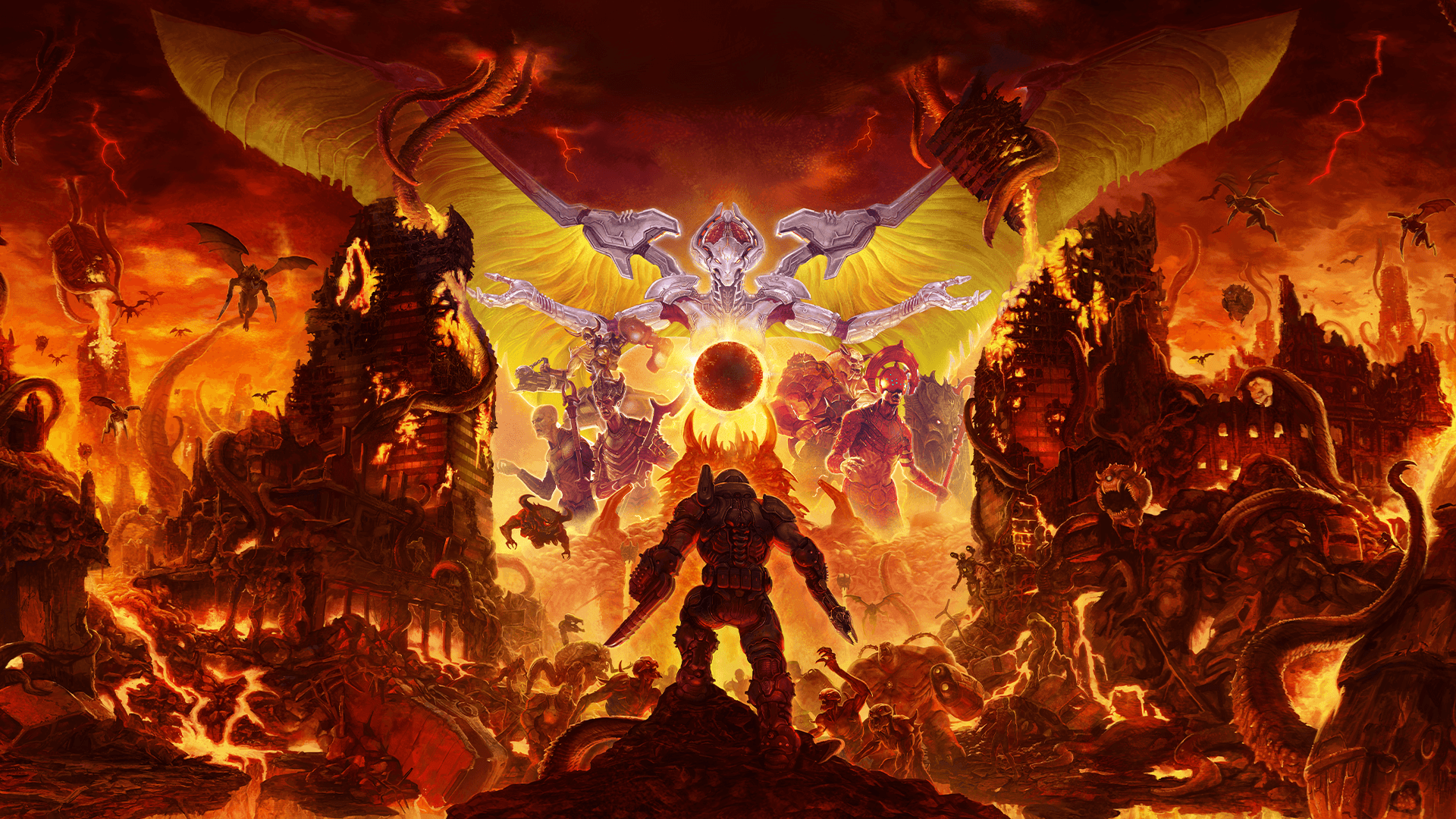
Well, that’s my short list, and I hope that there’s something here that you might not have played. Have you got any recommendations for games that will put a smile on our faces? We’d love to hear your suggestions across our social media pages below!
Skills utilised:
Covid 19, News
Play for Less
Let’s talk about money. There’s no doubt that for most, video games are a treat rather than something you buy every week. Spending money now has the added complication from COVID-19, as many of us are under pressures from work, on furlough, or without a regular source of income.
For most countries across the world, restrictions are meaning spending more time indoors, away from friends and family. But that doesn’t mean there aren’t ways to combat this and connect virtually with your loved ones. Whether it’s sharing a treasured game with a fellow gamer, exploring different styles of games, or looking to jump into the world of gaming – there is something for everyone.
We’ve curated a thrifty list of platforms where you can source free games, free trials or fantastic deals, so it’s one less thing to worry about if you need to escape the world for a little while…
PC
Fanatical – Fanatical have regular Steam bundles that are heavily discounted, and occasionally offer free games as well.
Humble Bundle – Humble Bundle offer discounted games, bundles, and occasionally a free game to download too.
Epic Games – Epic are well known for offering one free game a week, as well as featuring free-to-play games and discounts.
Indie Gala – Offers bundles, discounts, giveaways and free-to-play games.
Steam – Lots of free-to play games, regular discounts and sale events.
Stadia – Free trial to premier membership (cancel at any time) to access games collections.
Blizzard Net – Offers free-to-play games as well as discounted games.
Arena Net – Offers free-to-play games, such as Guild Wars.
PlayStation
PlayStation Plus – Free Trial – Sub Cost – Platform – PS4/5
PlayStation Now – Free Trial – Sub Cost – Platform – PS4
Xbox
Xbox Gold – Free Trial – Sub Cost – Platform – Xbox
Xbox Game Pass – $1 Trial – Platform – PC / Console / Mobile
Nintendo
Nintendo Membership – Free Trial – Sub Cost – Platform – Switch
Mobile
iOS – There are hundreds of free games and apps available on the Apple store – from tetris to open world RPGs, explore the store to find something up your street.
Android – Again, hundreds of free games available on Android. You’d be surprised at what you can find!
Humble Bundle – As with PC, Humble Bundle offer discounted games, bundles, and occasionally a free game to download too.
Stadia – Free trial to premier membership (cancel at any time) to access games collections.
Skills utilised:
Covid 19, News
Staying Positive During Lockdown
Lockdowns and restrictions are in place across the world, and it can be hard to stay positive; but it’s important to know where support can be found if you’re struggling.
As the situation surrounding COVID-19 is changing, we recognise it can be stressful and confusing. The team at Safe In Our World have created some useful tips, tricks, and games that have helped them to stay positive during the COVID-19 pandemic.

“I’ve changed my routine so I do the horses in the morning rather than after work – it’s made quite a difference to how I feel!”
Kim, Trustee
Try to stay connected to people; whether it’s having weekly catch up calls with loved ones, visiting your favourite streaming channels/chat forums or spending time with your household.

“Each morning Sarah and I have a 10am coffee catch up, like we would do in the office. It’s a nice start to the day, and normalises working from home.”
Rosie, Charity Officer
Talk about your worries and how you’re feeling. Sharing your concerns with trusted people can lift a weight off your shoulders. There are a number of helplines available here if you’re not comfortable talking with people you know.
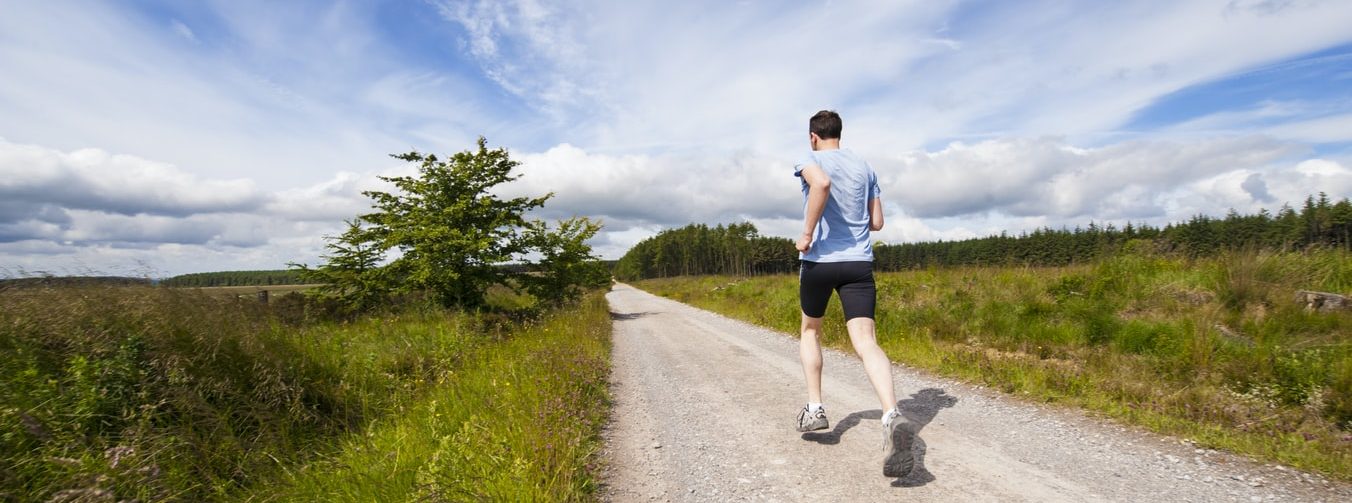
“Doing exercise during the morning or day is so much better than at night. Food is important too – don’t always opt for the sugary snacks.”
Leo, Chair & Trustee

“I’ve finally started doing a lunchtime workout a few times a week, just 15 minutes to get my blood pumping. Great for a midday energy boost!”
Beth, Web/Social Team
It’s important to be correctly informed regarding the ongoing situation, so ensure you’re reading from credible sources, such as the NHS website. Inaccurate information is easily spread, and can lead people to panic.
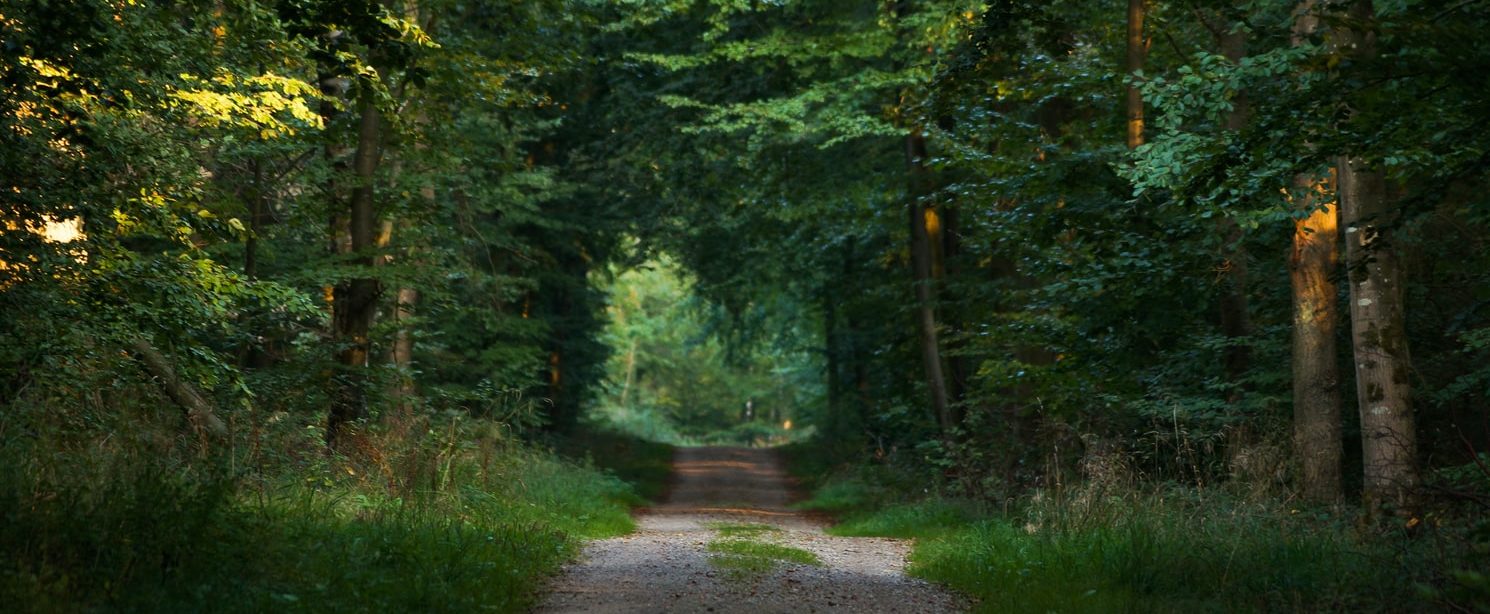
“I make sure I get a walk in every day (even when I don’t fancy it) just to get some fresh air. I live near a canal, so it’s nice to see some wildlife too.”
Sarah, Charity Officer
Look after your sleep – a good nights rest can make a huge impact on your physical and emotional health. Try to create a sleeping pattern you can stick to, to ensure you have a calm enviroment to wind down in.
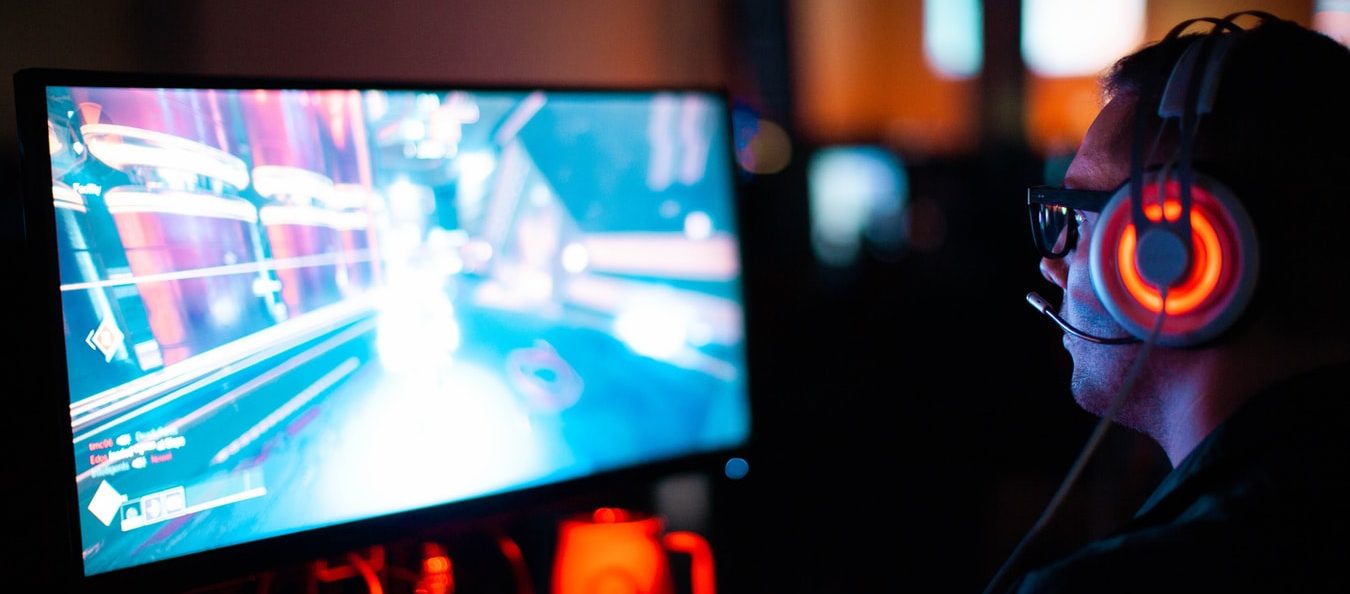
“I’ve tried mixing in game communities more, with more social games. Not drinking as much caffeine and sugar has also had good effects on my anxiety.”
Jake, Charity Assistant
Recommended games during the lockdown:

Skills utilised:
Covid 19
The effects of ‘lockdown fatigue’ – and tips to tackle it
2020 has been a year where we just couldn’t have predicted the enormity of what would happen. In the first few months, most of the world was put into a lockdown where the mantra was stay at home, stay safe and try to slow down the spread of COVID-19. In normal times, most of us have a tried and tested daily routine, and the lockdown unexpectedly interrupted everything. For so many people, it took a toll on their physical and mental wellbeing, with many feeling anger, sadness and overall confusion.
We asked a gamer and two people who work in the games industry on how it has affected them:
Lee Hunt from Koch Media had this to say about his lockdown experience:
“Working from home has been something of a battle. As nice as the commute is, and as good as Teams and Zoom are, video calls just can’t replace human-to-human interaction. Working at home even in a “team” can often feel very lonely and isolated. It’s also hard to switch off from work when your home becomes your place of work. Taking regular exercise and finding the time to do things – like playing a game with your colleagues – are really good ways to boost your mental and physical health and help to forget about some of the challenges the world is facing for a while.”
Anni Valkama, a 100% video gamer and scribbler of stories, had this to say about her time in lockdown:
“At first, the lockdown offered a seemingly perfect opportunity for retrospection and time to recharge. With furlough halting my work late-March, I suddenly had all this time on my hands to do all the things I normally could not do on a day-to-day basis. However, at the time I had no idea what three months in solitude (I live alone with no pets, partner, or friends) would do to me. Was it not for the distraction offered by video games and the existence of social media as means of communication, who knows how I would have emerged from this experience.”
Lorna Birrel, an industry worker, told us:
“I already struggle a little with social interactions. I have days where my critical voice decides everyone hates me. I’m usually pretty good at handling it, but lockdown really knocked me off balance. Because of the isolation from my colleagues and friends, it’s harder to reassure myself that everything is okay. In online chats, people can wander away and get a cup of tea, or get distracted and forget to reply – but you don’t know what’s happened because you can’t see them. We all experienced this before lockdown, but now it’s the main way we talk to each other, it makes everything more disjointed. I quickly found myself exhausted by so much online interaction, and I’m still trying to find a balance that works for myself and others.
Another area I got worn out from quickly was all the work calls. We have been encouraged to have cameras on if we feel up to it, but as we can no longer tell who’s looking at who, even when I’m not part of the conversation I feel like I can’t relax – like someone might judge me if I slouch my shoulders and don’t look my best.
As time has gone on, less and less people have their cameras on, so I think many of us are feeling burned-out by this. It doesn’t help that meetings have increased, because you can no longer casually walk over to someone and chat for a bit, and some people struggle typing everything out due to intonation being lost. I think we’re all doing the best we can, and there are some great upsides – no commute, more comfortable clothes (especially in heatwaves) – but the permanence of the distance, and not knowing when it really ends, is draining.”
Top tips
It’s clear that everyone deals with lockdown fatigue differently, but the most important question is what can you do to reduce it? Here are some tips that could potentially help:
1 – Exercise regularly.
2 – Try and maintain a good sleep pattern if possible.
3 – Try to have a structure in your day. Plan ahead in the morning and stick to it as best you can.
If you have trouble sleeping:
1 – Routine is key to help minimize stress.
2 – Getting outdoors and exercising now there are fewer restrictions will help. If you can’t go outside there are indoor exercises you can do.
3 – Turn off your screens at night and avoid sugary foods.
4 – Check your environment – is the place where you sleep too hot or too cold? Are there any LED lights that might be keeping you awake?
5 – Wind down, take a bath, read a book. It all helps.
6 – We sleep for a third of our lives! Instead of thinking of it as an inconvenience, try to think of sleep as a priority for your mental and physical wellbeing.
Skills utilised:
Covid 19, News
Returning to work in a post-covid world
UPDATE TO UK RESIDENTS
As of Monday the 28th of September 2020 in the UK the government has since changed their stance on returning to work and now it is required of you to work from home if possible to limit the spread of COVID-19. The Rule Of Six is also in place, which limits you from meeting more than 6 people. Additionally, if you are not self-isolating when told to do so you can face up to a £10,000 fine.
ORIGINAL POST:
Six months on, restrictions are being lifted and many non-essential shops and services are back up and running. The idea of ‘getting back out there’ is easier for some than it is for others, and can be a big source of anxiety.
Returning to work, whatever you do, is a topic that is being handled in many different ways across businesses. This lack of consistency can make it even harder to know how to approach returning to work and what is best for you.
We conducted a Twitter poll, to see how you felt about returning to work:
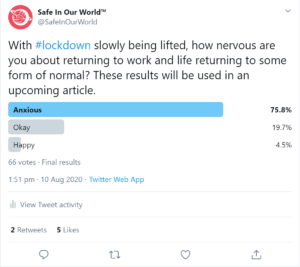
As the poll suggests, people are anxious. Our way of life has completely changed since lockdown began and some of the most vulnerable among us may have been isolated for 4 months or more, with little to no contact with people face to face. The ongoing adjustments to lockdown have been tough for many and getting back to a normal routine is proving to be just as difficult.
The government has written new guidelines on what you can do when it comes to workplace concerns. Below is one of the frequently asked questions about returning to work:
“What should I do if my employer is asking me to come to work, but I’m scared to do so given the pandemic?
Your employer should consult with you on how you can work safely and must ensure workplaces are safe if they are asking you to return…
If you remain concerned that your employer is not taking all practical steps to promote social distancing then you can report this to your local authority or the Health and Safety Executive who can take a range of actions, including where appropriate requiring your employer, to take additional steps.”
You can find more information on the Gov website HERE.
It is currently up to employers how they manage their return to work procedures. If you are unsure whether your workplace is taking the necessary precautions, these are the guidelines all businesses must follow:
- Let you travel to work at quieter times of the day
- Reduce how much face-to-face contact you have with the public
- Make sure that staff stay at least 2 metres apart in your workplace
If you’re seeking more reassurance, you can read the Citizens Advice article on returning to work HERE.
If you’re finding your anxiety is still fairly high, we provided some relaxation and coping strategies throughout lockdown that you can try in your own time. You can find them HERE.
Sources:
https://www.citizensadvice.org.uk/work/coronavirus-if-youre-worried-about-working/
Skills utilised:
Covid 19, News
Safe In Our World Launches #LevelUpMentalHealth
Today we announced the #LevelUpMentalHealth global campaign, with support from major game companies across the videogames industry. The campaign is the latest initiative as Safe In Our World continues to roll out dedicated efforts to rally the industry to support those affected by mental health ailments.
The #LevelUpMentalHealth campaign seeks to challenge the videogames industry to unite and commit to positive change, starting with workplaces, ensuring working environments are always safe and supportive of the mental health of its talent.
Visit https://safeinourworld.org/level-up/ to learn more.
As part of the initiative, Safe in our World has co-created an employer’s mental health toolkit, giving guidance and empowering developers, publishers, and service providers to place positive mental health at the forefront of their plans.
Gaming companies and notables from around the world have continued to join Safe In Our World in its mission, and today the charity announced the latest partners, consisting of leading game publishers, developers and service providers committed to the cause.
The #LevelUpMentalHealth campaign challenges are:
- Commit to taking the first steps in rolling out a mental health policy in the next 12 months
- Join Safe in our World as a partner and commit to supporting mental health within the videogames industry
- Help spread the message to creators and players by sharing messaging and signposting inside the workplace and externally to players via media channels.
Safe In Our World is delighted to welcome 505 Games, Auroch Digital, Caged Element, Camel 101, Curve Digital, Embracer Group, Explosive Alan, Fanatical, Genba Digital, Heaven Media, Honest PR, Koeken Interactive, LKA, Mediatonic, NeoHype, NextGen Skills Academy, One PR Studio, OPM Jobs, Outright Games, Polystream, PressEngine, Rethink Mental Health, Renaissance PR, Ripstone games, Sheridans, Sold Out, Take This, UberStrategist, UKIE, Wired Productions and more!
Skills utilised:
Covid 19, News
Who Can You Talk To?
Knowing where to turn can be difficult during this time, particularly during periods of isolation. Many mental health services are experiencing extra strain and this means that some of you are facing extended time on a waiting list. To help you find someone to talk to in the here and now, we’ve put together a list of services that are here for you.
Global
- Virusanxiety.com is a Coronavirus anxiety hub that provides an abundance of resources from free meditations, through to how to manage financial anxiety and isolation – https://www.virusanxiety.com
UK
- For young people who need assistance, Childline offers online live chats or advice over the phone. During the Pandemic, their hours are 9 am till midnight every day – https://www.childline.org.uk/get-support/contacting-childline/
- Mental Health Matters provides numbers for different counties in the UK. They also offer a live chat service if you prefer talking online to speaking over the phone – https://www.mhm.org.uk/helpline-webchat
- If you’re in crisis or need to support someone close to you, you can call, email, or text SANEline. Due to the Pandemic, they are running a condensed version of their service – http://www.sane.org.uk/what_we_do/support/helpline
- If you’re under the age of 35, Papyrus UK offers a service for those experiencing suicidal thoughts or know someone that is – https://papyrus-uk.org/
- Befrienders Worldwide can help you find the service you need and addresses a range of issues to help you find what’s right for you – https://www.befrienders.org/need-to-talk
- MIND UK has an information line that can help guide you to the service that you need – https://www.mind.org.uk/
- For those who need immediate help in a crisis, a new service called Shout is offering a 24/7 text service to help anyone in need – https://www.giveusashout.org/
- Support Line Covid 19 offer help and advice – https://www.supportline.org.uk/problems/coronavirus-covid-19/
- Call Helpline is a mental health helpline in Wales that also talks about Covid 19 – https://callhelpline.org.uk/COVID19.asp
- LGBT Foundation offer advice and help on their website and also have a phone number if you need to talk – https://lgbt.foundation/coronavirus
- Stone Wall offers guidance for LGBT organisations can help during this time – https://www.stonewall.org.uk/about-us/news/covid-19-%E2%80%93-how-lgbt-inclusive-organisations-can-help
United States
- For the US equivalent to Shout, check out the Crisis Text Line – https://www.crisistextline.org/
- Mental Health America offers a helpline to get you in touch with the service you need – https://www.mhanational.org/get-involved/contact-us
- NAMI has a helpline and text service to help those in crisis. Their website also offers information on finding the right help for you – https://www.nami.org/Home
- Samaritans America offers similar services to those in the UK with a 24-hour crisis hotline – https://samaritansnyc.org/24-hour-crisis-hotline/
Austria
- Krisen interventions zentrum (Covid 19) offers help and advice and also has a crisis line if needed – http://www.kriseninterventionszentrum.at/
Belgium
- General Support Including COVID 19 and General helpline (including psychological support): 0800 14 689
Czechia
- Ministry of Health offers advice about Covid 19 – Phone 1212
Denmark
- If you need to talk to someone about Covid 19 Organisationen Børn, Unge & Sorg 69161667
- You can also talk to Psykiatrifonden 39252525 about any COVID 19 related inquiries
France
- SOS Amitié offer a COVID 19 helpline which you can find out more on their website – FR 0142962626 EN 0146214646 https://www.sos-amitie.com/web/internet/carte#item44
Germany
- BDP e.V. (COVID-19)BDP-Corona-Hotline 8007772244 https://www.bdp-verband.de/presse/pm/2020/bdp-corona-hotline-psychologische-beratung-in-corona-krisenzeiten.html
Netherlands
- De Luisterlijn offers a helpline related to COVID 19 9000767 https://www.deluisterlijn.nl/ik-zoek-hulp-home/over-corona.html
Portugal
- Sociedade Portuguesa de Psicanálise offers a service related to COVID 19 questions 300 051 920
Spain
- If you have any COVID 19 related questions Colegio de la Psicología has both a website and phone number 636039891 https://diariosanitario.com/psicologia-telefono-coronavirus/
Sweden
- Mind Sweden offers both help with mental health and COVID 19 Aldrelinjen 20222233 https://mind.se/hitta-hjalp/aldrelinjen/
Switzerland
- Urgences santé offers a website and phone number to help with COVID 19 related requests 144 https://www.santepsy.ch/fr/pages/sante-mentale-covid-19/sante-mentale-covid-19-910
For even more available support and contact details in your territory, visit our Find Help page.
Skills utilised:
Covid 19
Games industry unites to offer thousands of free games to NHS workers
Ukie has teamed up with influencer marketing solution, Keymailer, and developers and publishers from around the world to offer free games to NHS workers.
The Games For Carers initiative allows NHS workers access to a game or game subscription as a thank you for all the work they are doing during the COVID-19 pandemic. The hope is that the games can provide some much needed escapism and stress relief for workers and their families. Amongst the many developers and publishers on board with the initiative are Bethesda, Sega, Curve Digital, Jagex, Konami, THQ Nordic and Xbox Game Studios.
Dr Jo Twist, Ukie CEO and Safe In Our World Patron, said of the initiative:
“The UK games industry has been proud to play its part in conveying these vital public health messages during this national emergency. Now our community has united again to say thank you to the truly extraordinary people who make up the NHS frontline team. Games companies of all sizes and players everywhere recognise their exceptional dedication and hope this initiative goes some way to help them understand how respected and valued they are.”
If you work for the NHS and want to claim a free game, you can find out more here.
Skills utilised:
Covid 19, News
How to Spot a Friend or Colleague in Need
With almost all daily communication taking place online during lockdown, it is twice as hard to spot if someone is struggling. So we’ve put together some key things to look out for during this time, in the virtual workplace and beyond.
Social Media
Ultimately, we’re creatures of habit. Is there someone you know that frequently shares content via social media? Has there been a significant drop in their activity? It’s worth reaching out to check in and see how they are doing.
Language
It’s easy to say, ‘I can’t tell how someone is saying something via text’. It’s not an entirely false statement, we lose a number of aural and visual factors required to process how a person communicates. However, we all have habits in this area too. Does someone use a lot of expressive punctuation? Are their sentences peppered with emojis and exclamation points, or colourful language and humour? Has this person started using more full stops and shorter sentences? If someone you know or work with is showing strong irregularities in their written communication this could be a sign that something is wrong. Don’t address it openly in front of the group if something stands out in a work-based chat – reach out to them individually and lend an ear.
Overworking
Is someone working later than everyone else? Are they almost invisible in workplace chats and keeping their head down? Don’t jump to the conclusion that they are finding the work too difficult or that they can’t handle the pressure. You don’t know what might be bubbling under the surface.
In this scenario, you don’t necessarily have to focus in on the individual. You can implement team based catch ups that take place toward the end of each day. Here, people can openly discuss where they are with certain tasks and offer up their help to each other, in order to wrap things up for the day. This promotes a supportive and positive environment, and will also show the individual that they are not alone. If the person is still pushing themselves too hard, reach out privately and offer support.
Keep in Touch
So, your colleague has opened up to you after you decided to check in on them. Don’t assume that once they feel calmer, everything is better and back to normal. Keep in touch with regular contact. This doesn’t mean obsessively messaging the person and patronisingly asking, ‘are you OK?!’ every hour – that will put pressure on the person and they will feel as if you’re waiting for them to be ‘fixed’. Just drop in to a chat a couple of times a week, showing that you care and share your experiences to empathise with the person. Or simply talk to them about something you know they are passionate about!
Safe Space
It can be difficult for an employee to discuss their mental health with a colleague or someone senior to them in an organisation. It can feel like it may be seen as if they are a ‘problem’, difficult to manage, or build fear of a negative impact on their performance reviews.
If the person is suffering from a condition that has been declared, suggest scheduling a regular fifteen minute chat at the end of each working week. This would be an informal chat about anything at all and provide a platform for the person to speak freely about how they feel, what they are looking to do over the weekend, or that new game they’re hooked on. Providing a safe space to speak without judgement can be a great aid in releasing some of the built up pressure a person may be feeling.
If you don’t feel like the best person for the job, float the idea to the individual and ask if they would like to set something like this up. If they agree, allow them to nominate a person they feel comfortable with.
For detailed employer advice on managing and supporting the mental health and wellbeing of staff, ACAS are hosting a webinar on Tuesday, May 19th at 10.30am BST. To register, please visit the ACAS registration page HERE.
Skills utilised:
Covid 19
‘Final Fantasy’ players hold online funeral for player who died of COVID-19
Losing someone and dealing with grief is never easy, doing so during a lockdown as a result of COVID –19 is even more difficult.
In early April a small but tight-knit community in Final Fantasy XIV, sadly lost a friend. The community hadn’t met Ferne Le’roy in person and due to the lockdown they couldn’t attend the funeral. So they did something incredible and honoured her in the one place they could all meet: Final Fantasy XIV.
One of the organisers, Leafelda Moonchild, told Inverse that they didn’t expect anyone to turn up for the gathering they had organised and shared. But according to reports, hundreds of other players arrived with their digital avatars, all wearing black clothes and holding umbrellas. Together, they joined a procession in a touching tribute that was then shared on social media.
Lasting for close to an hour, the precession marched across the open world, ending at a picturesque tree for a final, and fitting tribute. It was beautiful and truly shows the community spirit of gamers, helping each other during one of the most difficult times we could all face.
If you or someone you know has lost someone, you can check out our page on bereavement HERE. If you are looking for more information during the COVID-19 Pandemic, you can check out our COVID-19 Hub HERE. The hub provides information such as coping techniques, government policies, things you can do during the lockdown and more.
Skills utilised:
Covid 19
Safe In Our World Teams up with Football Manager!
We’re proud to partner with the incredible team at Sports Interactive Games and Football Manager, to place Safe In Our World messaging in stadiums throughout the game. Following our recent launch of the Safe In Our World COVID-19 Hub, offering a range of support and tools for players to cope during these difficult times, we’re delighted to be able to extend our message to players within the league. We might not be able to help you avoid relegation, but we can help you find the right support. If you do feel like you’re lost, visit our Hub now or find contact details Here.

Skills utilised:
Covid 19, News
Gaming In Isolation: Community Top Picks
Is isolation boredom hitting you hard? Miss hanging out with friends, family and partners? We understand how challenging isolation can be for mental health. So we asked our community to share their top picks of games that you can get stuck into alone or with others online…
Animal Crossing: New Horizons

Animal Crossing: New Horizons lets you pack up your troubles and relocate to the paradise island of your dreams.
What’s the appeal?
1 – Animal Crossing is the perfect getaway package for the mind, allowing you to create and explore in a low-stress environment. Animal Crossing features user-friendly systems that help you set small daily goals.
2 – You can abide by social distancing rules and still have that much-needed social interaction with online and local play. Recently, people have reportedly celebrated birthdays, weddings, and more in-game!
3 – Animal Crossing: New Horizons is another title that features on our list of related games and apps and has provided solace for thousands of players during the outbreak.
The Last Guardian
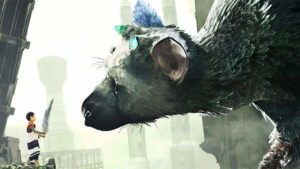
The Last Guardian is an action-adventure game which follows the journey of an isolated young boy who befriends a winged mythical creature named Trico.
What’s the appeal?
1 – There’s no dialogue in The Last Guardian – you form a strong bond with Trico that is non-verbal and based on emotional exchanges.
2 – The pacing is perfectly suited to anyone who wants to invest time in one particular story experience.
3 – Stunning meditative soundtrack and soothing atmosphere.
Persona 5 Royal

Persona 5 Royal is an extended version of the popular social-simulation RPG, Persona 5, which follows the enigmatic Phantom Thieves on their quest to right society’s wrongs.
What’s the appeal?
1- You play as the silent protagonist, whose choices and personality depend on you and how you choose to spend your time – providing over 70 hours of narrative content.
2 – Relatable characters, including a strong portrayal of severe depression and social anxiety.
3 – Persona 5 is already on our list of recommended apps and games, so an extended visit to the world of the Phantom Thieves is a must!
The Last Of Us

In The Last Of Us, players take on the role of a survivor named Joel as he makes his way across post-apocalyptic America following the Cordyceps outbreak.
What’s the appeal?
1 – The Last of Us is a thrilling adventure that keeps you on your toes and requires a level of focus that will draw you away from the real-world.
2 – Perfect for fans of a strong, cinematic narrative (think Uncharted, but with zombies!).
3 – The Last of Us has a stunning soundtrack that doesn’t miss a beat.
The Witcher 3: Wild Hunt

Toss a coin to your Witcher! Become Geralt of Rivia, a Witcher who hunts monsters for money. Most of the time.
What’s the appeal?
1- The Witcher 3’s world is vast and beautiful. While living in a confined space, the world of the Witcher opens the doors wide to a land of plenty.
2 – Incredible depth of narrative design that spans far beyond the main quest. From side-quests that can last anything from a few minutes to a few hours and discoveries that are steeped in lore, you have many fantastic hours ahead of you.
3 – Fancy a casual ride on horseback? You can spend hours simply riding across the realm and soaking up some rays in stunning vistas.
No Man’s Sky

No Man’s Sky gives you the freedom to explore 18 Quintillion procedurally generated planets! Discover vast ecosystems and learn how to adapt and survive as ‘the traveller’.
What’s the appeal?
1 – No Man’s Sky gives you the choice of playing on your own or with others, it also lets you freely take on the role you enjoy the most. Be it farming, space piracy, base building, exploration, and much more.
2 – No Man’s Sky has so much to see and do and a great addition to the title was its VR feature. If you have a VR headset the game provides total absorption in stunning, alien worlds.
3 – Transitioning from planet to planet enables the player to feel a sense of immediate escapism.
Stardew Valley

Stardew Valley lets players run their own farm in the small town of ‘Stardew Valley’. You can attend events, make friends with townsfolk, maintain relationships, and take part in a whole bunch of time-consuming activities.
What’s the appeal?
1 – Stardew Valley is a more structured version of the ideas presented in Animal Crossing. It features an ongoing narrative, neighbourly intrigue, and days are more like ‘turns’ rather than real-time days.
2 – As a simulation RPG with social elements, there are In-game seasonal events and activities to take part in that provide a feeling of community spirit.
3 – Chucklefish recently released an online mode so you can do all of the above with your friends and watch minutes turn into hours together.
Crash Team Racing

Beenox Productions made Crash Team Racing their own with this thrilling Kart Racer that’s fun for all the family. Players get to choose from over 50+ characters, 40 tracks, and 760 million different combinations!
What’s the appeal?
1 – With so much to unlock, Crash Team Racing is a highly rewarding experience and provides a challenge for those wanting to push themselves.
2 – It’s hard not to smile as you’re engulfed by the colourful, fun, and peppy atmosphere!
3 – You can play in single-player, online multiplayer or local multiplayer, which provides a social link to people that you are isolated with or online.
Minecraft
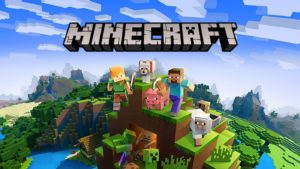
Minecraft is a game in which people can express their true creativity with blocks. Whether you want a survival experience, a creative experience, or even an educational one – the possibilities are endless.
What’s the appeal?
1 – Minecraft has worked its way into many people’s lives as an educational tool for those who may have kids off school and gives people a creative outlet. It also provides a social outlet to those who want an online experience with friends.
2 – Minecraft is a time-consuming game if you want it to be, with so much to do you’ll soon wonder why it’s time for bed when you thought you’d only just popped on after lunch.
3 – The community is huge and very engaging, there are also servers out there for people with mental health issues and other illnesses to express themselves and be safe while they play.
Tom Clancy’s The Division 2

The Division 2 takes place in Washington D.C. in a time where a terrorist threat has taken over most of the city and spread a virus that threatens the World. Team up with friends to take back the city or go it alone and be the character you want to be.
What’s the appeal?
1 – The wide-open spaces in The Division 2 have helped members of the community with feelings of claustrophobia.
2 – Explore a diverse cityscape that feels lived-in and full of activities.
3 – The game encourages you to play with friends during some of the most intense missions or raids in the game. This is a great aid in helping to cover social needs.
You can also check out our list of Mental Health Related Games & Apps.
Skills utilised:
Covid 19
Managing Stress
We can’t hide from it, right now is a very stressful time. It’s ok to feel this way, to feel anxiety about the future. So tips to help, is to first, make sure you follow your local government guidance. Stick to the facts that they provide, and avoid sensationalised headlines and media coverage. The best source of information is direct from the CDC and from WHO, in addition to your government briefings.
Try these simple techniques if you start to feel overwhelmed:
- Deep breathing. This means taking a long, slow breath in and very slowly breathing out. If you do this a few times and concentrate fully on breathing, you may find it quite relaxing. Some people find that moving from chest breathing to tummy (abdominal) breathing can be helpful. Sitting quietly, try putting one hand on your chest and the other on your tummy. You should aim to breathe quietly by moving your tummy, with your chest moving very little. This encourages the diaphragm to work efficiently and may help you avoid over-breathing.
- Muscular tensing and stretching. Try twisting your neck around each way as far as it is comfortable and then relax. Try fully tensing your shoulder and back muscles for several seconds and then relax completely.
For more guidance, you can visit – https://www.verywellmind.com/abdominal-breathing-2584115
If that didn’t work for you, you can try the alternate method, you’ll find that a quick search online will generate many different methods and finding the right one for you is important. Here is one from the NHS UK. https://www.nhs.uk/conditions/stress-anxiety-depression/ways-relieve-stress/
Skills utilised:
Covid 19
Relaxation techniques
Relaxation is a must during this time, why not set yourself 30 minute sessions 2 to 3 times a day to practice the techniques. This will help them become more effective over time and help during this stressful period.
- Find a cool and quiet room where you’ll not get disturbed
- Lie down or sit comfortably with your legs uncrossed
- Put on a comfortable item of clothing and take shoes off
- Gently close your eyes or focus on something in front of you
- Clear you through, and focus on breathing
Taking slow and controlled breaths will help feel calmer when anxious or stressed, breathing to quickly and deeply might make it worse. To control breathing follow the steps below:
- Place on hand on your chest and other hand over your stomach, you want your stomach to move more than your chest as you breath.
- If you can take slow regular breaths through your nose, or mouth. Watch your hands as you breath in, the hand on your stomach should move and your chest shouldn’t
- Breath out slowly through pursed lips
- Repeat this 10 times twice a day
If you need a to focus your mind, this tip might help you. Create in your mind an ideal spot to relax for example, somewhere you love to be, a holiday destination, a place you would want to be to relax. Imagine it in as much detail you can, audibly, visually and feel. Once you have envisioned the place of comfort close your eyes and take a slow, regular breath in through your nose, out through your mouth and be aware of your breathing. Do this for 10 to 20 minutes.
Quick muscle relaxation.
This exercise will teach you to recognise and reduce muscle tension, you can relieve tension in any part of your body by tensing and relaxing each muscle.
- Find a comfortable chair to sit in and follow these steps.
- Close your eyes and focus on your breathing, breath in through nose, out through mouth.
- Make a fist and squeeze your hand tightly
- Hold this for a few seconds noticing the tension
- Slowly open your fingers and feel the difference, notice the tension leaving. Your hand will now feel a lot more relaxed and lighter, enjoy this feeling.
If you have any physical injuries or conditions that cause muscle pain, it isn’t recommended to do these exercises in those areas.
Once you have mastered the technique that works most for you, you can use them whenever you feel the need too. To do this you can use a cue, something that’ll catch your eye and remind you too drop your shoulders, check your breathing and relax muscles in your body. An example of a cue could be a small recognisable object on yourself, or possibly a room in your home that can act as a reminder.
After relaxation, don’t get up to fast, sit with your eyes closed for a few minutes to avoid the possibility of feeling dizzy, open your eyes and make sure you feel okay before standing up.
Skills utilised:
Covid 19
Be active!
Of course, we know games can really help ‘switch off’, but sometimes putting down the controller (or mouse!) and getting up are great for your mind and body too! Try to give yourself a set period of time each day (and at least move/ get up for a stretch every hour!)
Music: If you have the means to play music, play it! The wonderful folks at MIND have a great blog on why music is great for your mental health, following research that found music releases dopamine, the ‘feel-good’ chemical in your brain! Read more here.
Gaming: Ok, of course, we’re going to recommend gaming! Pick something you love and that you can get lost into for an hour!
Online: The internet can provide a lot of entertainment from streaming services, social media to keep in touch with others, research and more. It is important to stay connected during this lockdown period and many services are offering to talk when you feel the need to and it’s definitely good to keep in touch with friends.
Exercise: There are many great apps and online sessions that can help you get moving, but it doesn’t have to cost you money. The NHS in the UK have a wide range of tips, or if you have a garden, or can safely go for a walk while keeping social distancing, simply put on your
Mobility: If you have physical conditions or mobility issues, the NHS has a great range of routines to support you staying active?
Skills utilised:
Covid 19
Routines
Routines are part of our everyday lives but unfortunately the recent COVID-19 our usual routines have been interrupted. We feel that it is important to try and keep some routine in your life for your mental wellbeing and to keep you busy through this time. If you live with others perhaps you can schedule an exercise session one hour per day at a specific time, have a family movie night once or twice a week or play some board games. If you live alone perhaps set up a social session on a video game or a chat program to speak with friends or other people in the same boat.
In this Guardian article, three people who have had to live in isolation most of their professional life have listed tips on keeping safe and well through-out the uncertain time.
Skills utilised:
Covid 19
Working from home
Some employees have been able to work from home instead of going to a workplace. Whilst this is great for keeping job security and ensuring many businesses can continue, it is important to plan how you will work within your home to avoid stress and to keep a clear line between your work time, and your rest.
UPDATE TO UK RESIDENTS
As of Monday the 28th of September 2020 in the UK the government has since changed their stance on returning to work. It is now required to work from home where at all possible to limit the spread of COVID-19. The Rule Of Six is also in place, which limits you from meeting more than 6 people. Additionally, if you are not self-isolating when told to do so you can face a fine of up to £10,000.
Our top tips:
If you’re part of a team, you’ll likely take to great apps such as skype, teams and others. But try to set some ground rules. In the office, it’s easy to shout out and start a group conversation that you’ll all take part in but bombarding each other with conversations can be overwhelming. So instead have agreed times to talk as a group and save topics or questions for each other until then.
Find your space: Don’t work from your sofa or bed, it’s important to try and draw up some boundaries and clear areas where you’re in ‘work mode’ and when you’re in ‘offline mode’. If you can, find a different room to where you would normally relax. Without these boundaries, you’ll work more hours than you should, and it’s vitally important to keep a good work/life balance.
Clock in and out: Try to keep to your regular working times – have a clear time to start, and a clear time to finish. Of course, if you have children or loved ones to care for, your employers should offer flexibility to allow the time during the day you need. But it’s important not to let your workday stretch into the evenings, or times you’d normally not be working.
Remember to eat: Eating healthy is important for all parts of your body, including your brain. It’s very easy to plug into the matrix, and not unplug until the end of the day. Keeping up with regular healthy meals is very important. Plan your day, what will you eat for breakfast, lunch and then dinner. Of course, right now, the normal diet you may follow might not be possible, and many of us are having to be creative with ingredients. So where possible, at least try to mix up meals. Foods such as vegetables, meat, eggs, dairy products and even maritime, can be a great source of vitamins and minerals. Learn more via the NHS.
Take breaks: Work can make you skip meals, which isn’t great. But also, you should be unplugging and taking regular breaks throughout the day. In fact, it’s commonly agreed that 5 minutes away from a PC screen every hour can be of great benefit, but also that lunch hour, fully away from work can do wonders for your stress levels.
Get Outside: Where possible, take your break outside! Spending time in nature – even if it’s your own back garden, or if social distancing rules allow, take your break as part of your daily work out. The sun and fresh air can do your mental health wonders!
Actually work: Netflix, consoles, TV… it can be very tempting to fall into bad habits. Try to stick to the above, have clear breaks, a clear end to your day and a clear place to work from. Distractions are everywhere, but taking those distractions away will make you more productive, helping you to stick to work schedules, and meaning you’ll work set hours but achieve as much as you need to.
Be honest: If you are struggling, not feeling well or under pressure – talk to your employers. They have a duty of care to support you.
Skills utilised:
Covid 19
